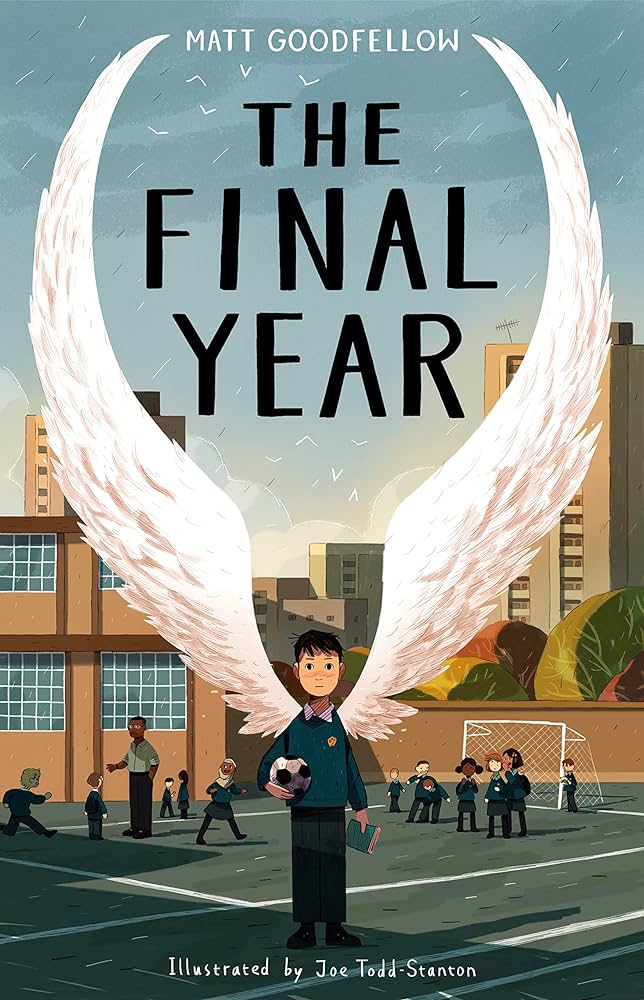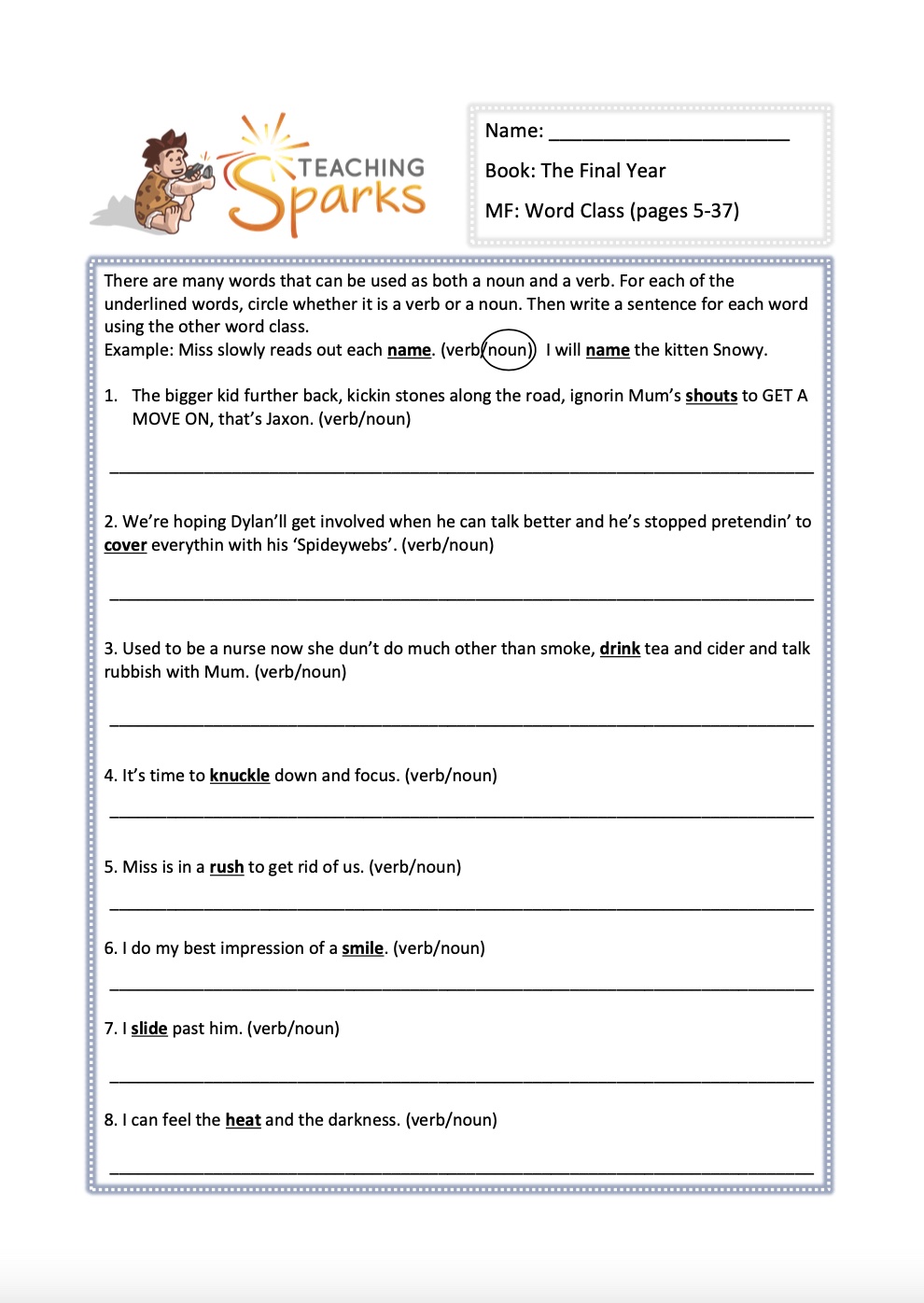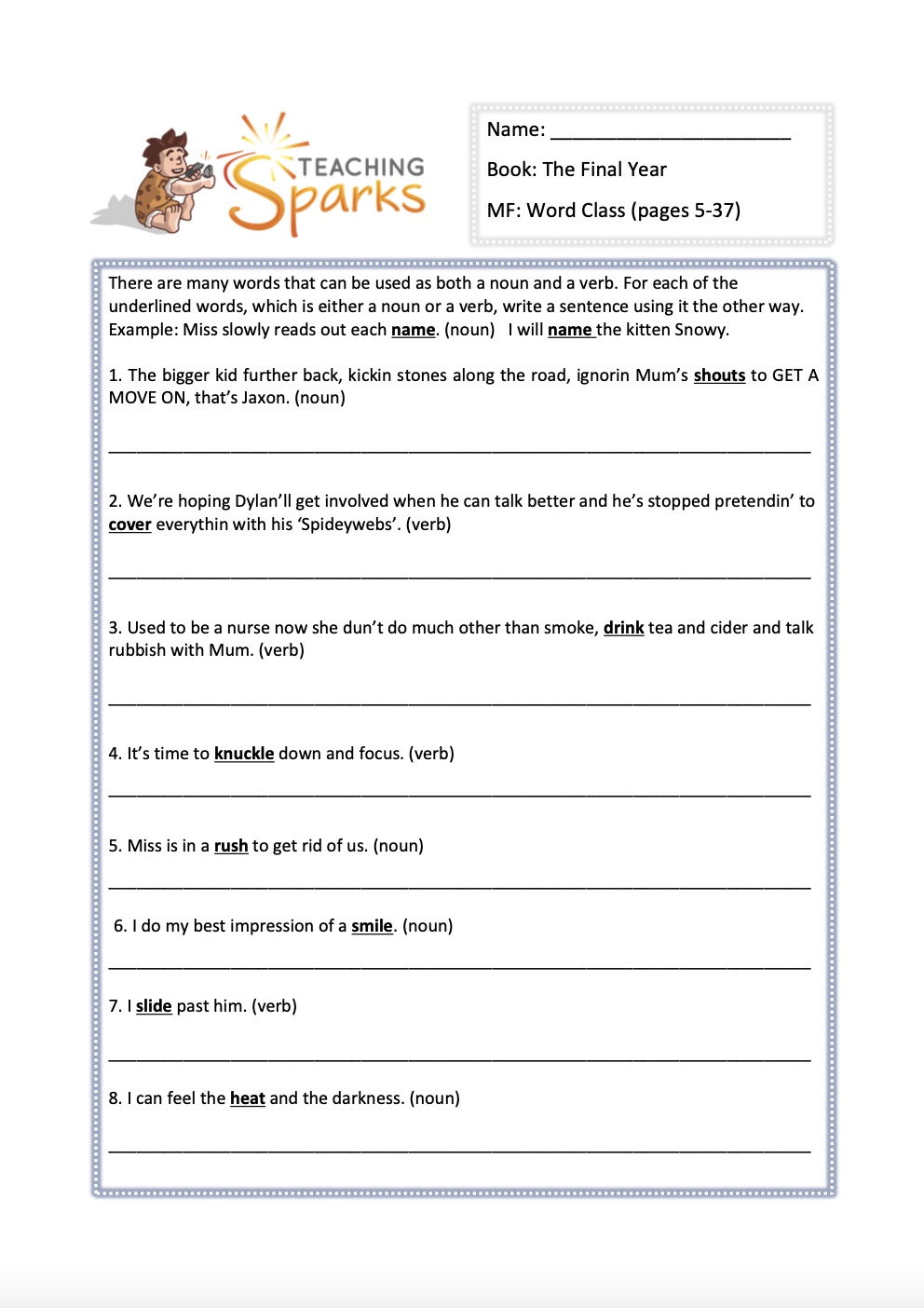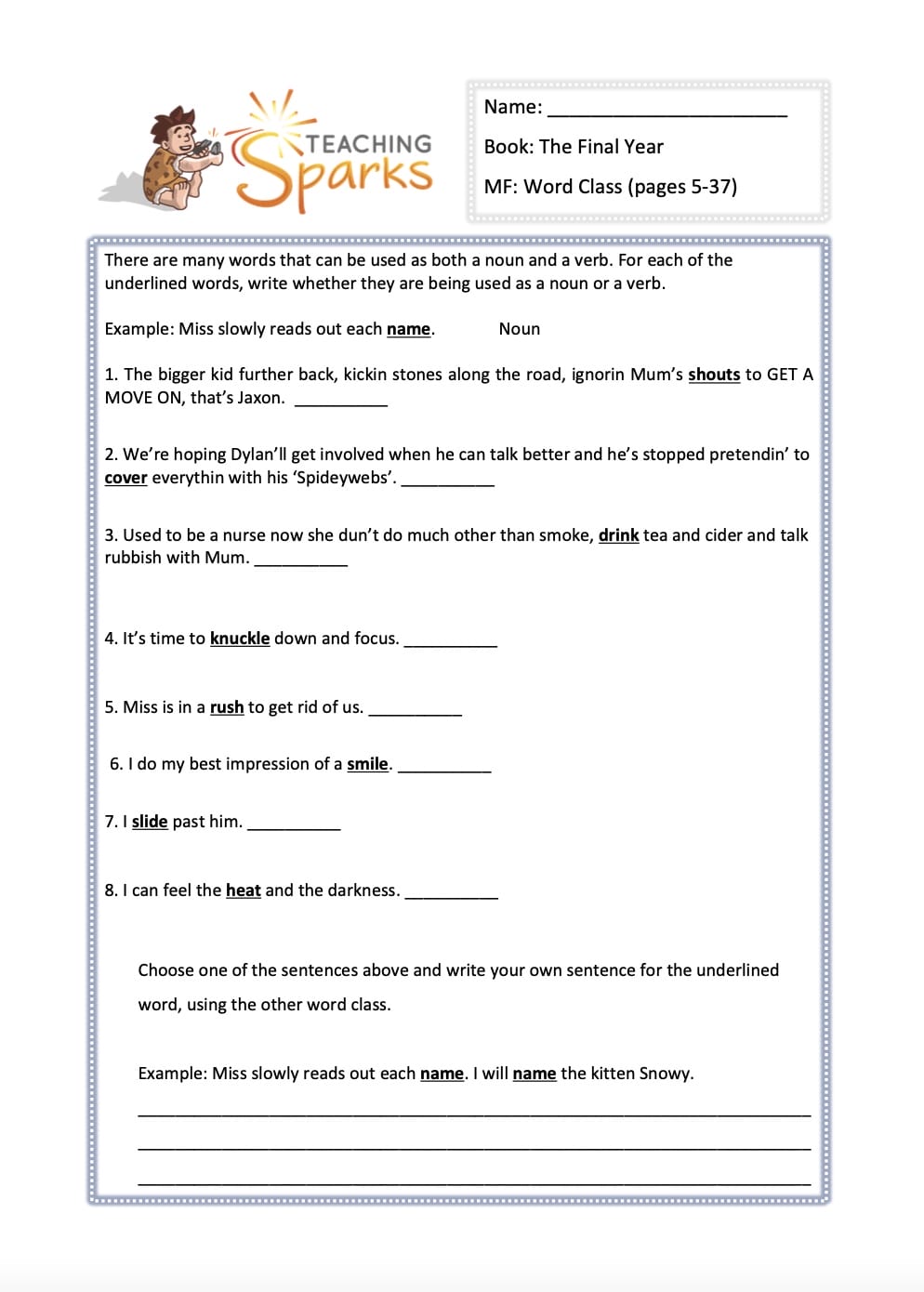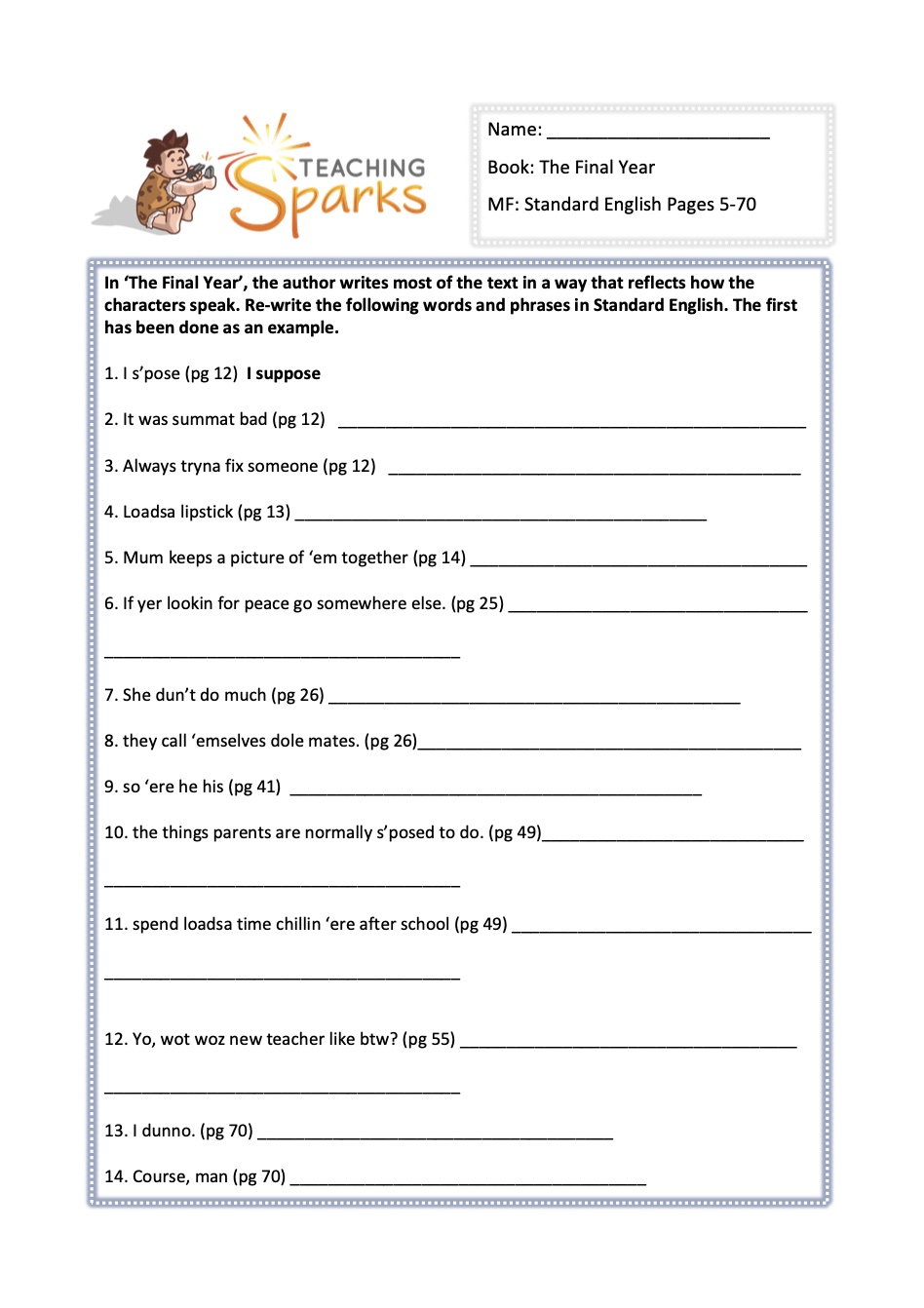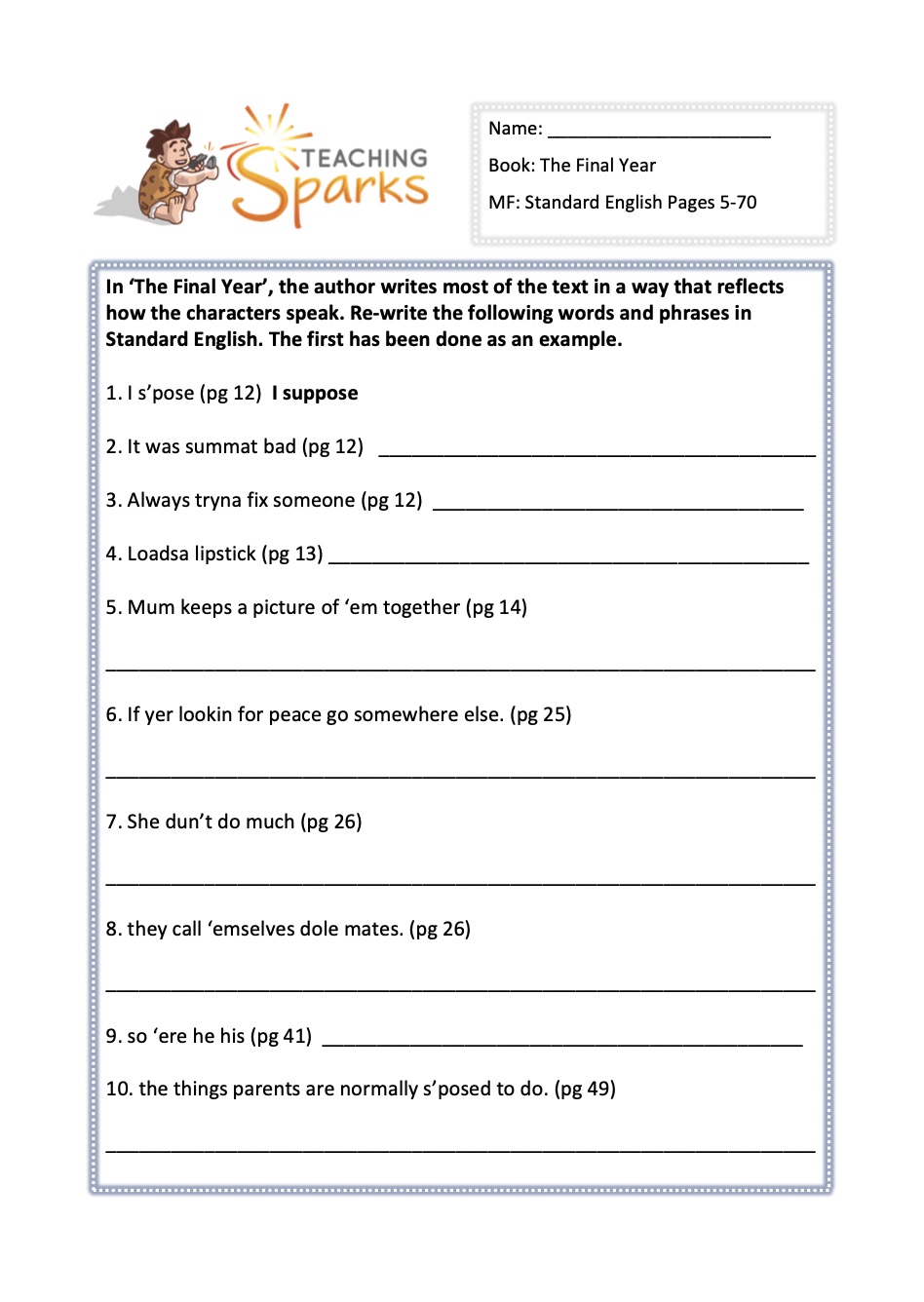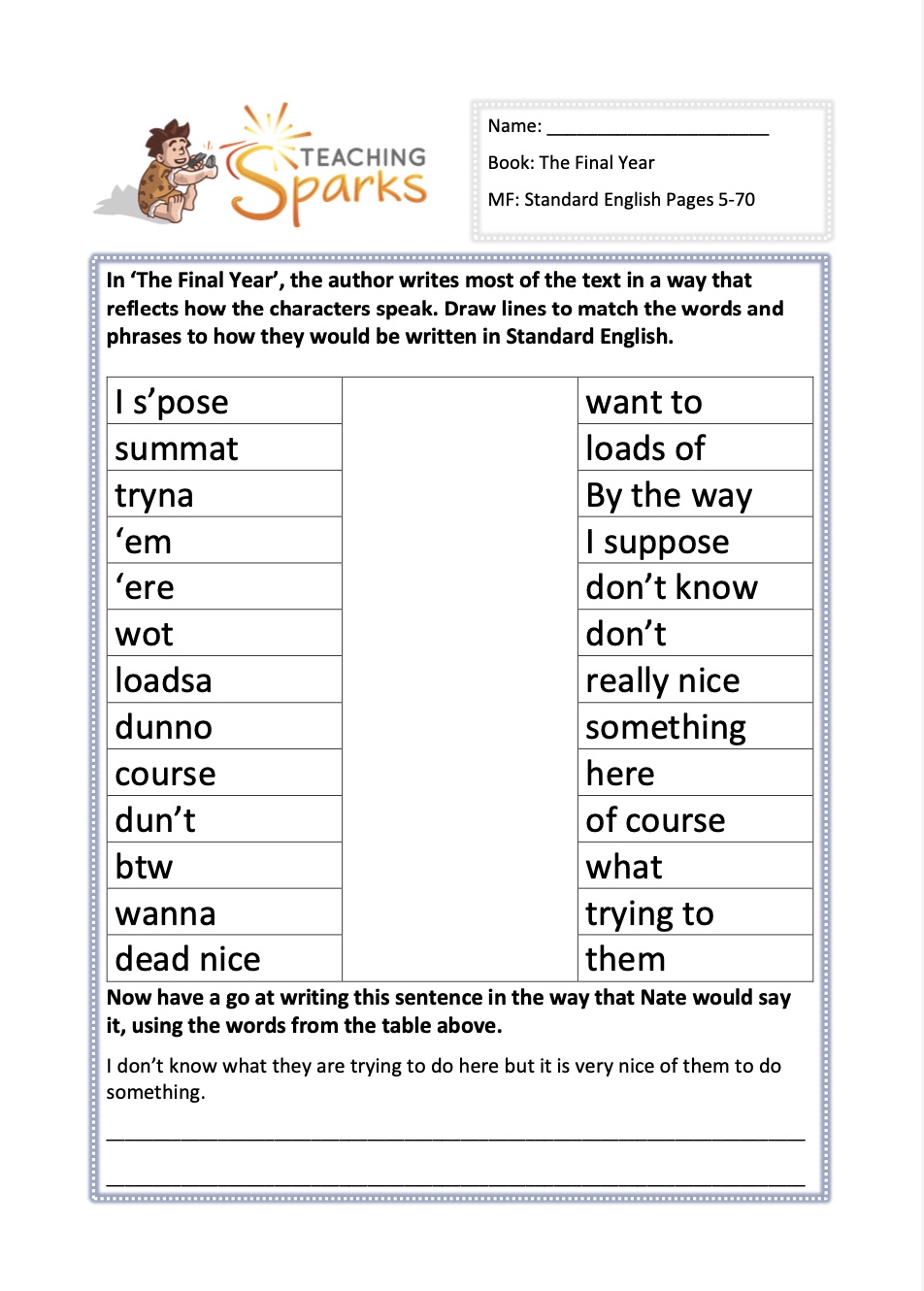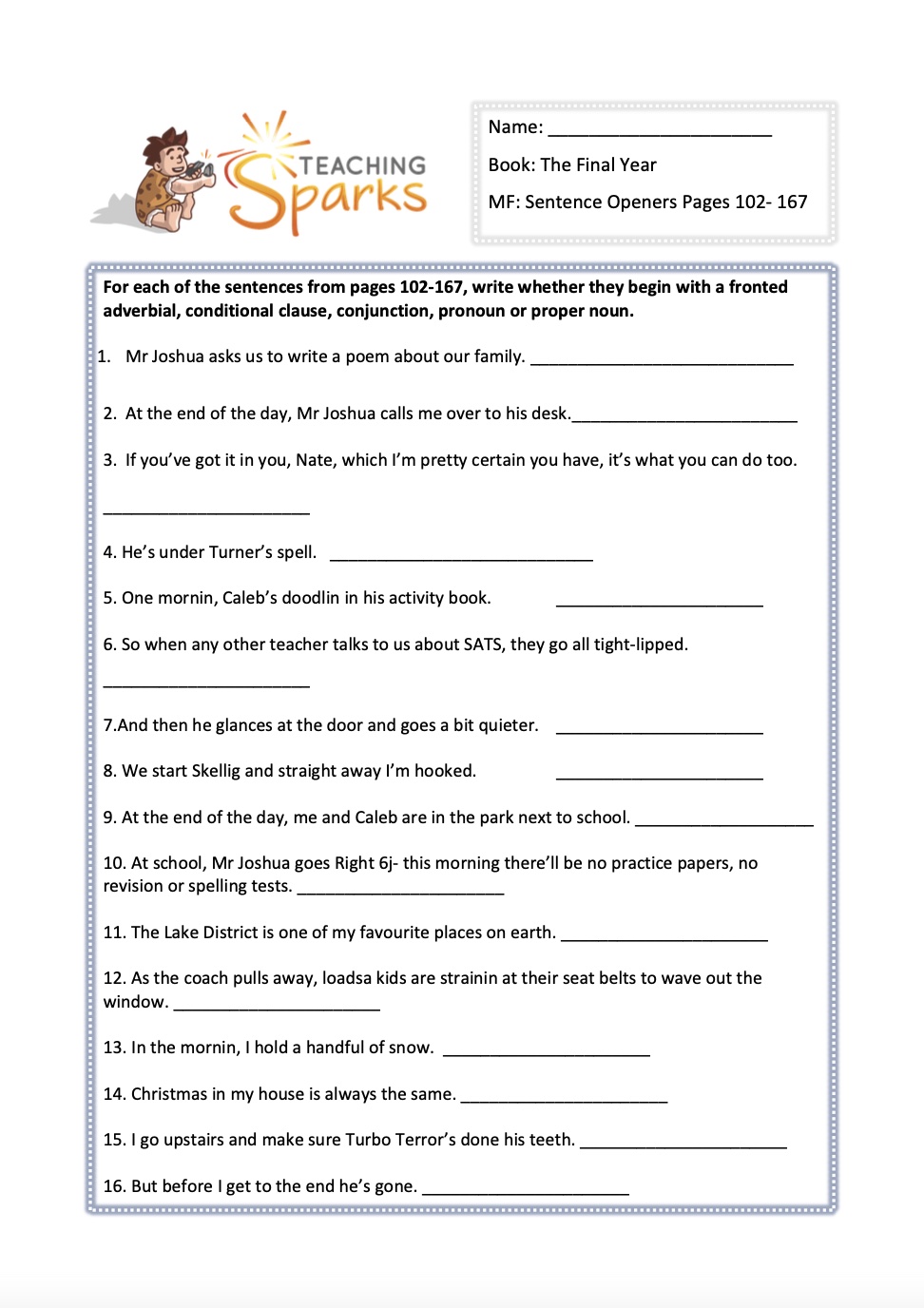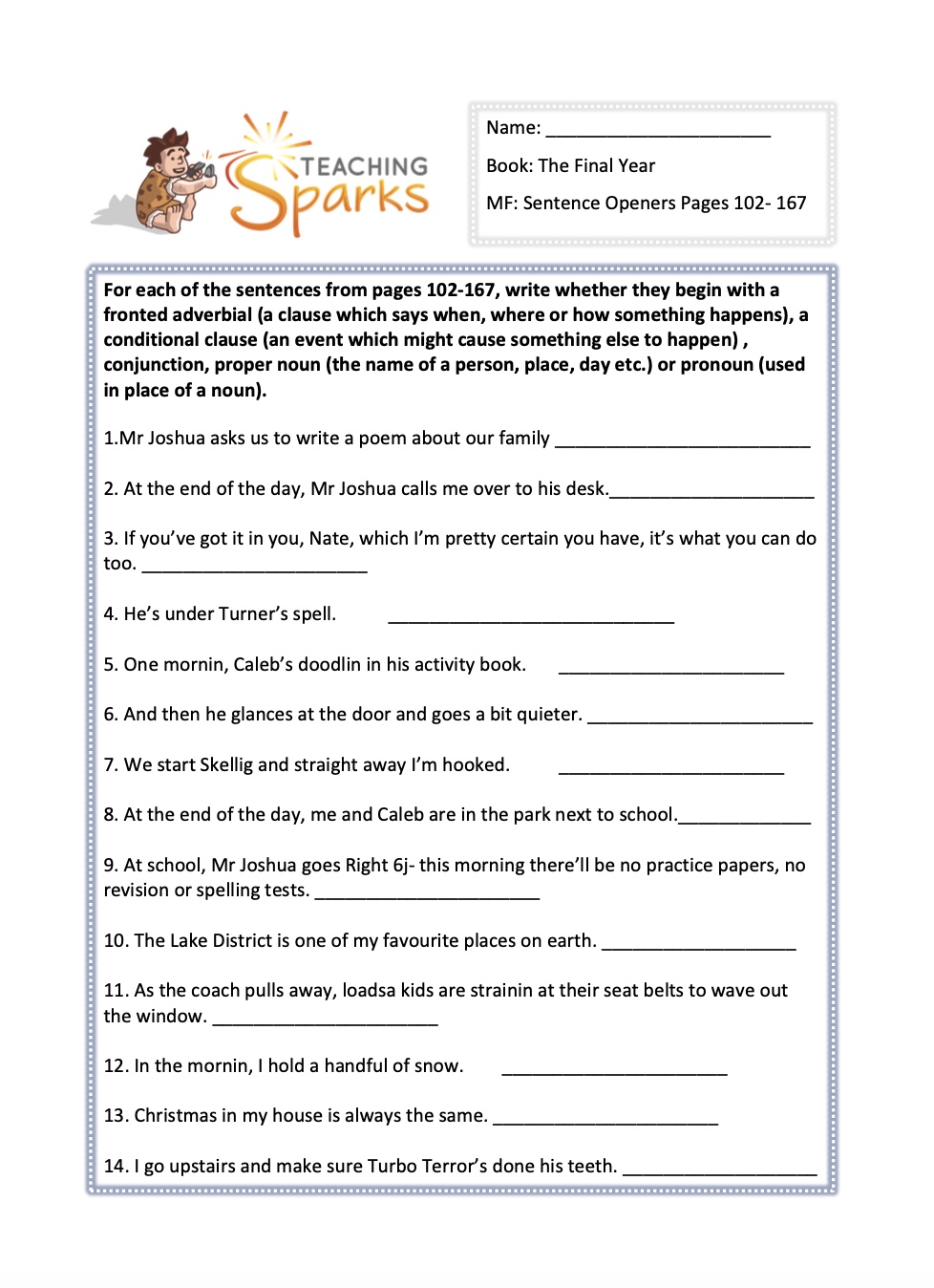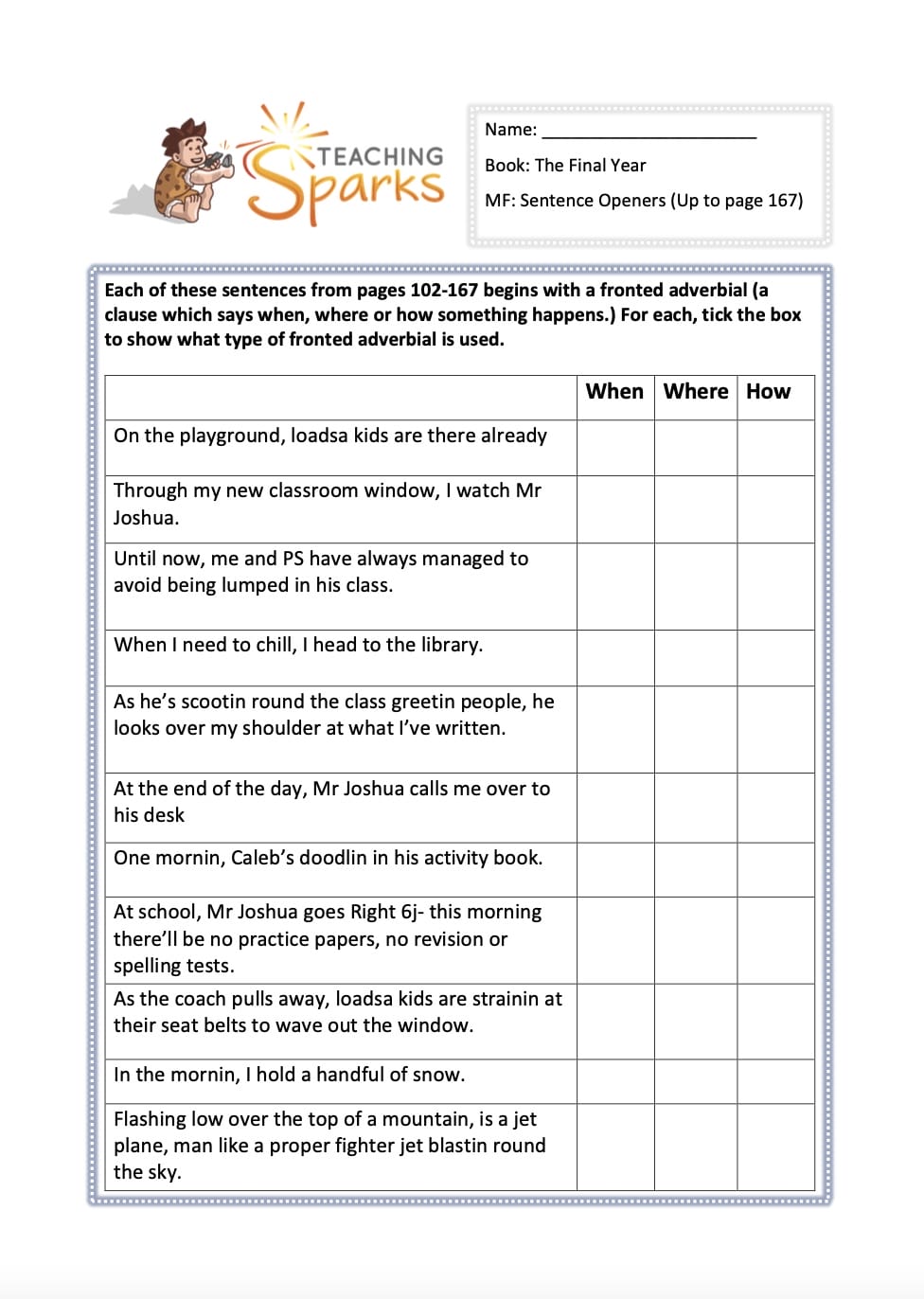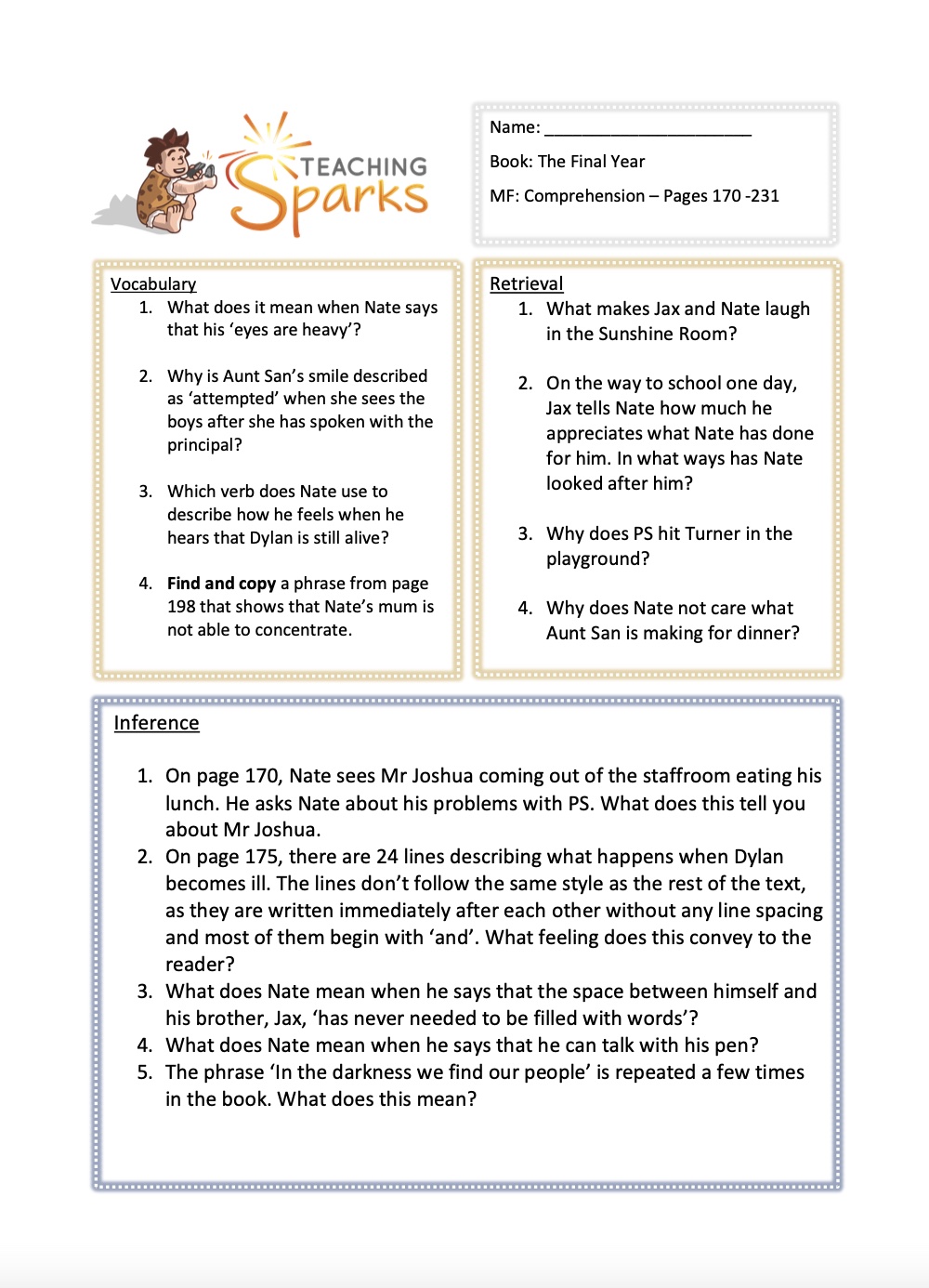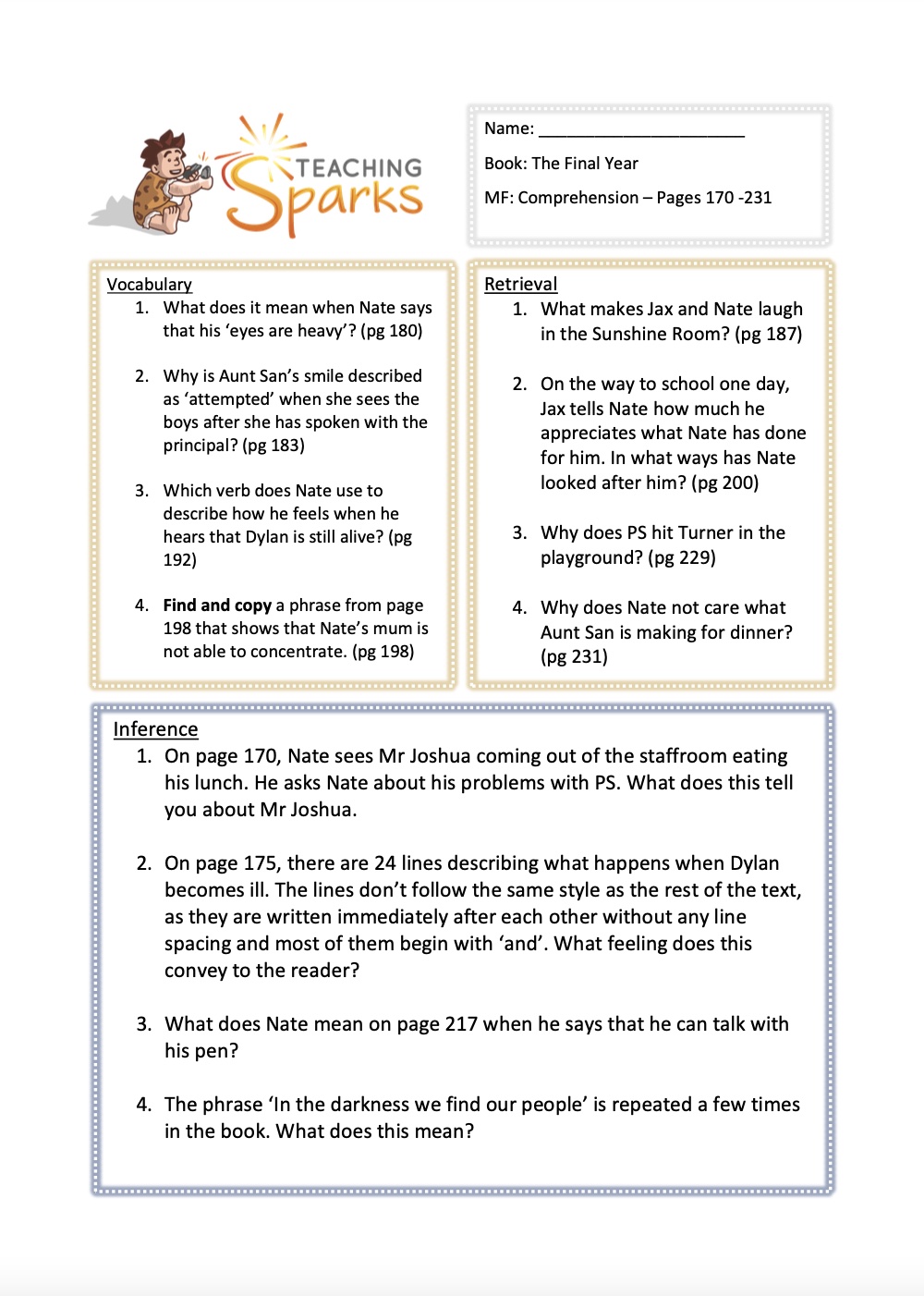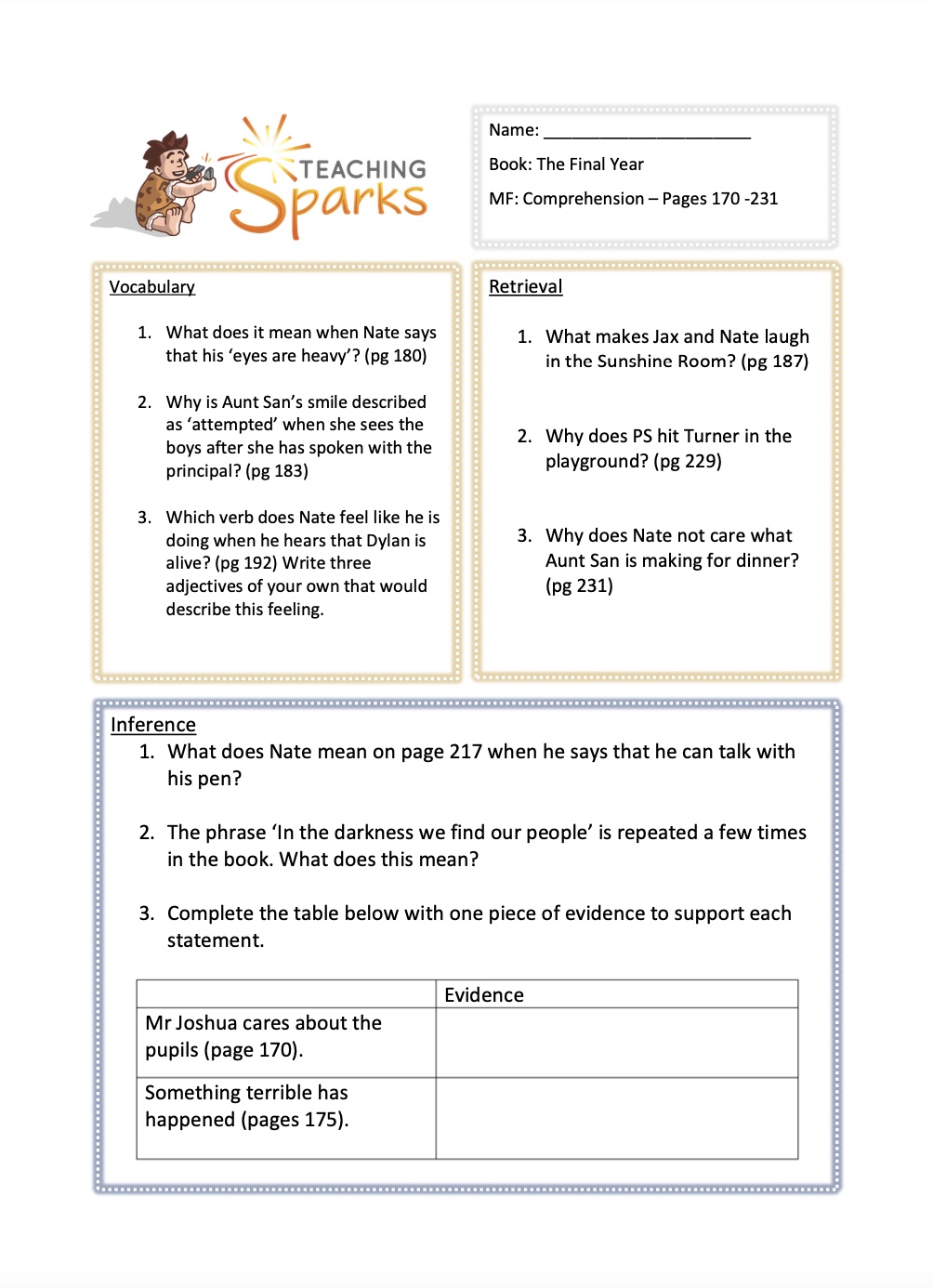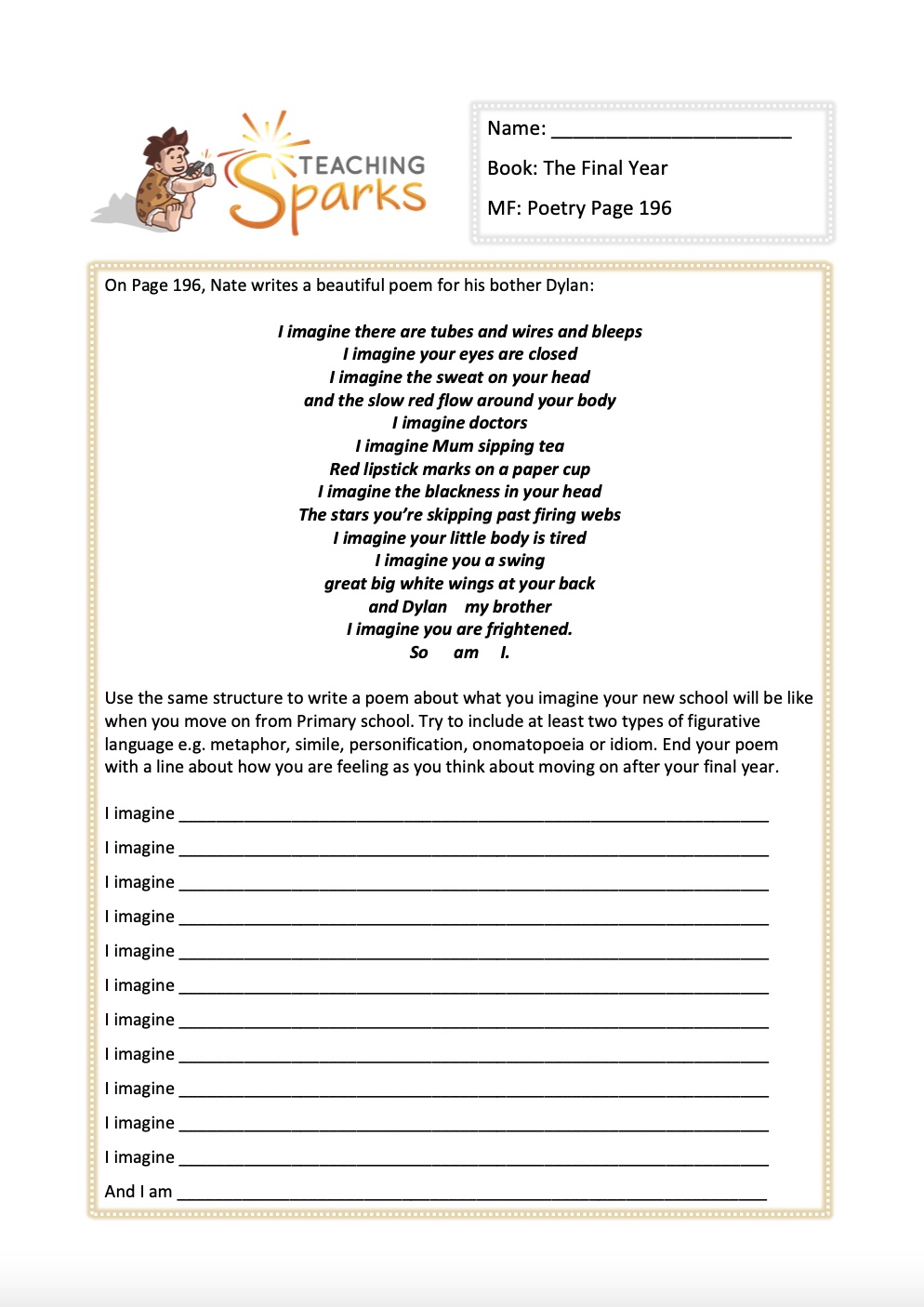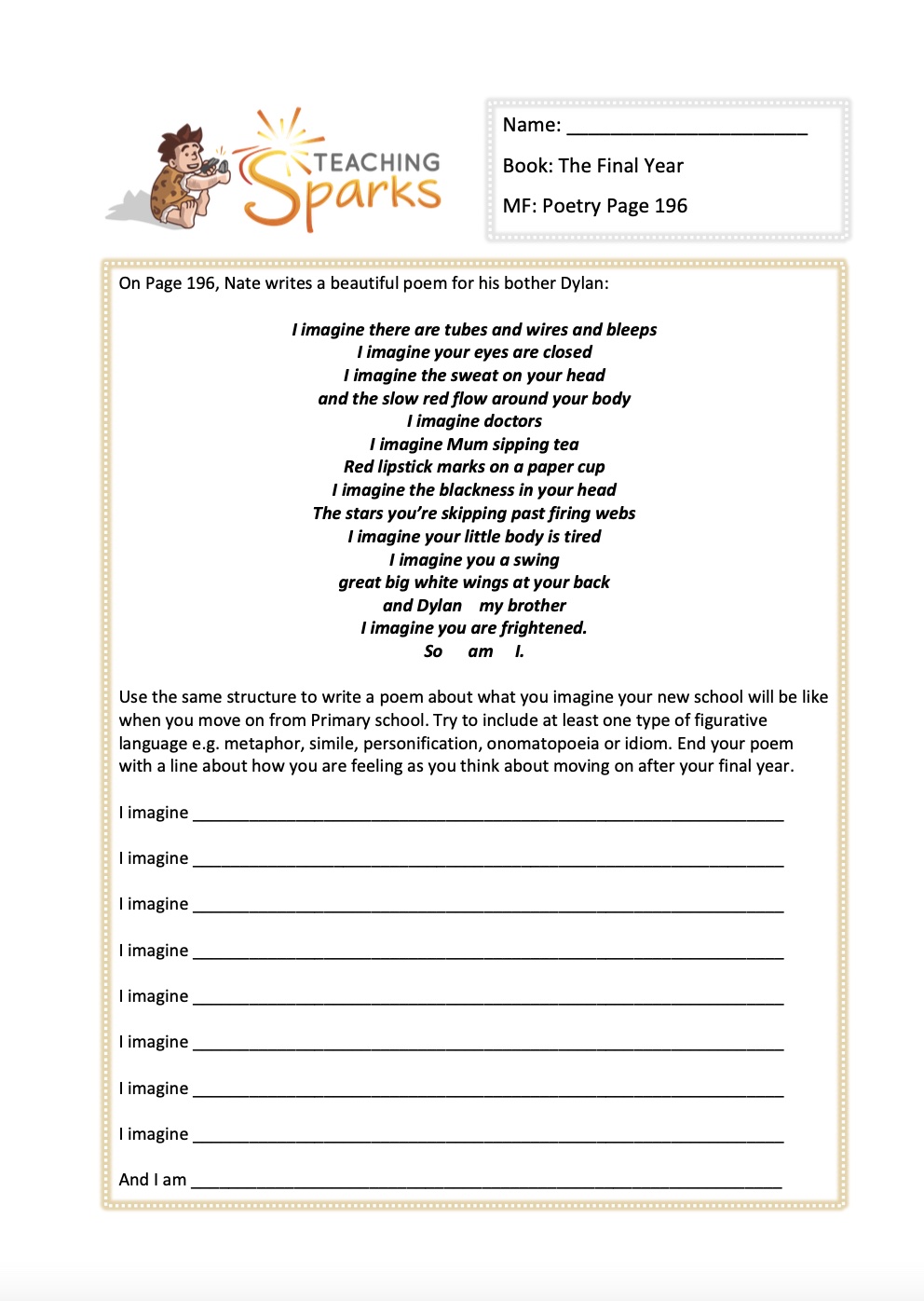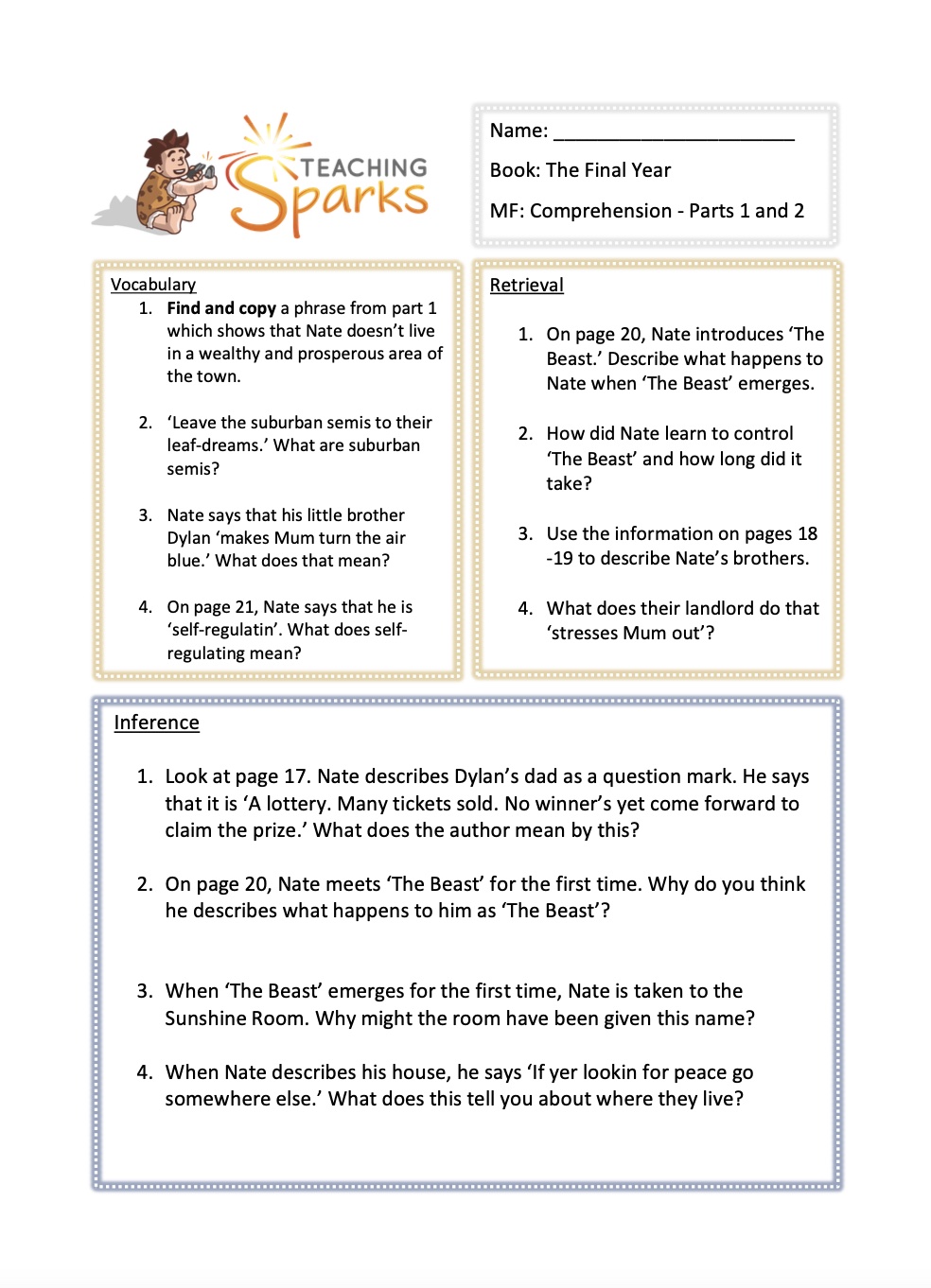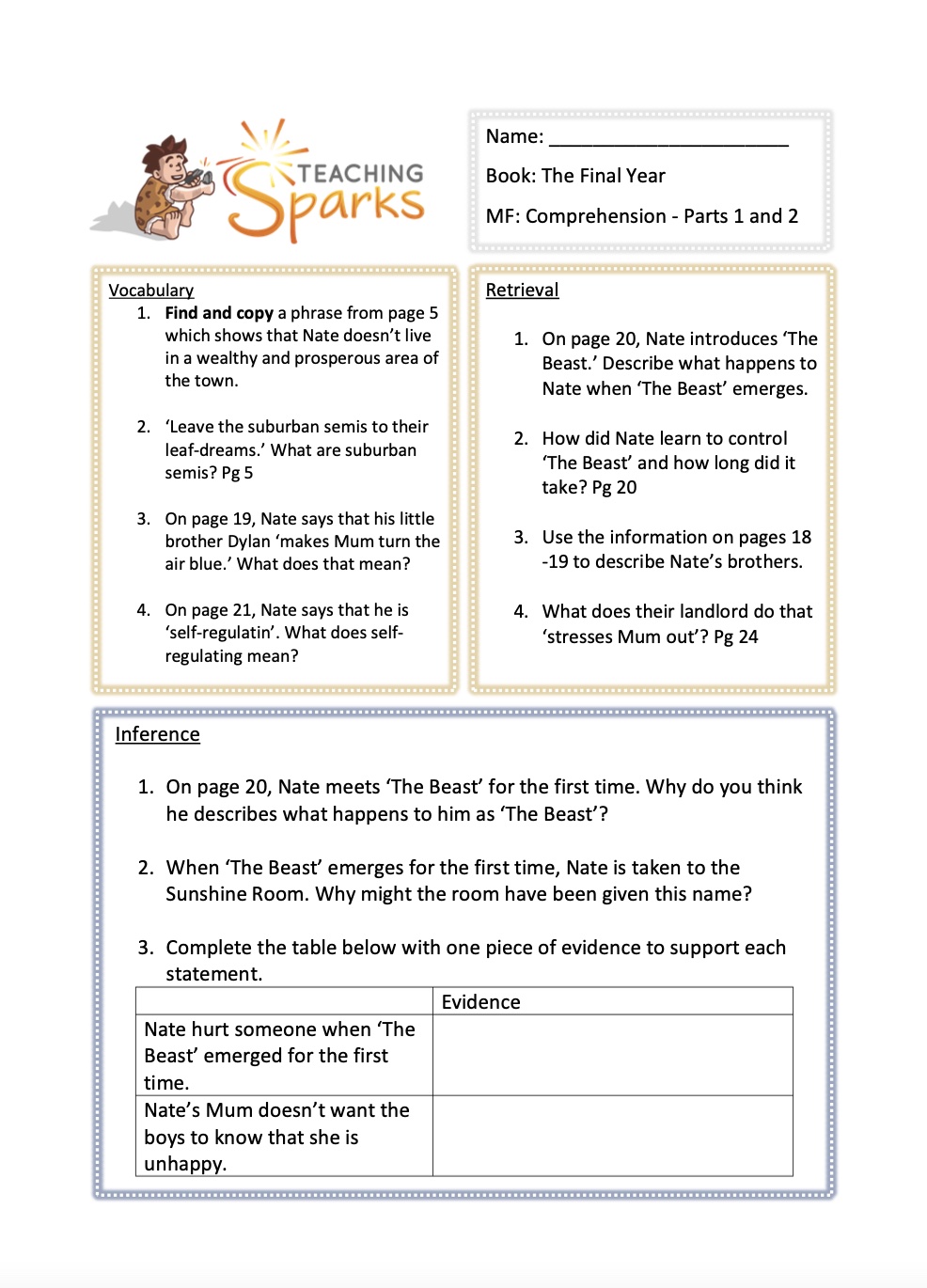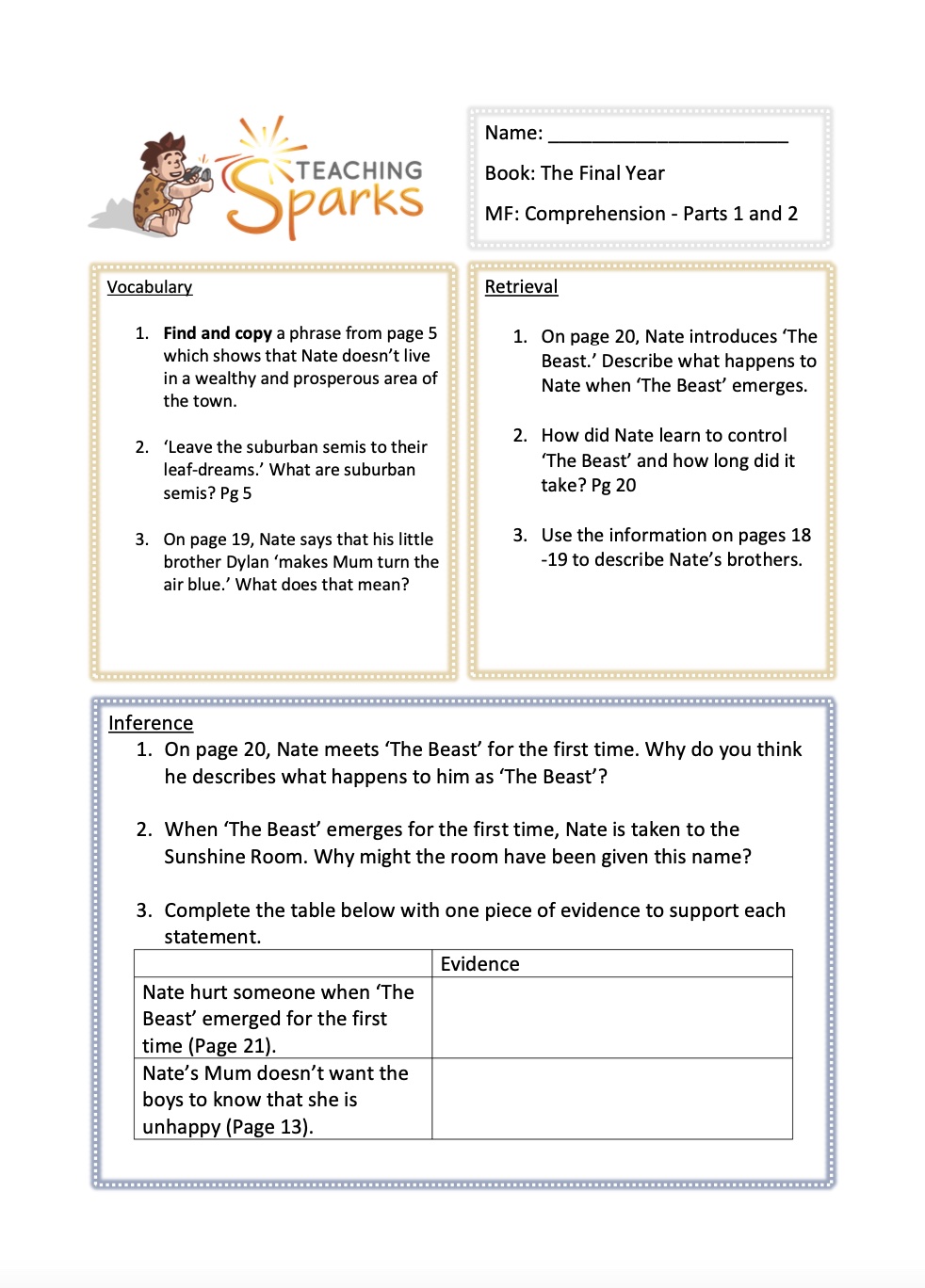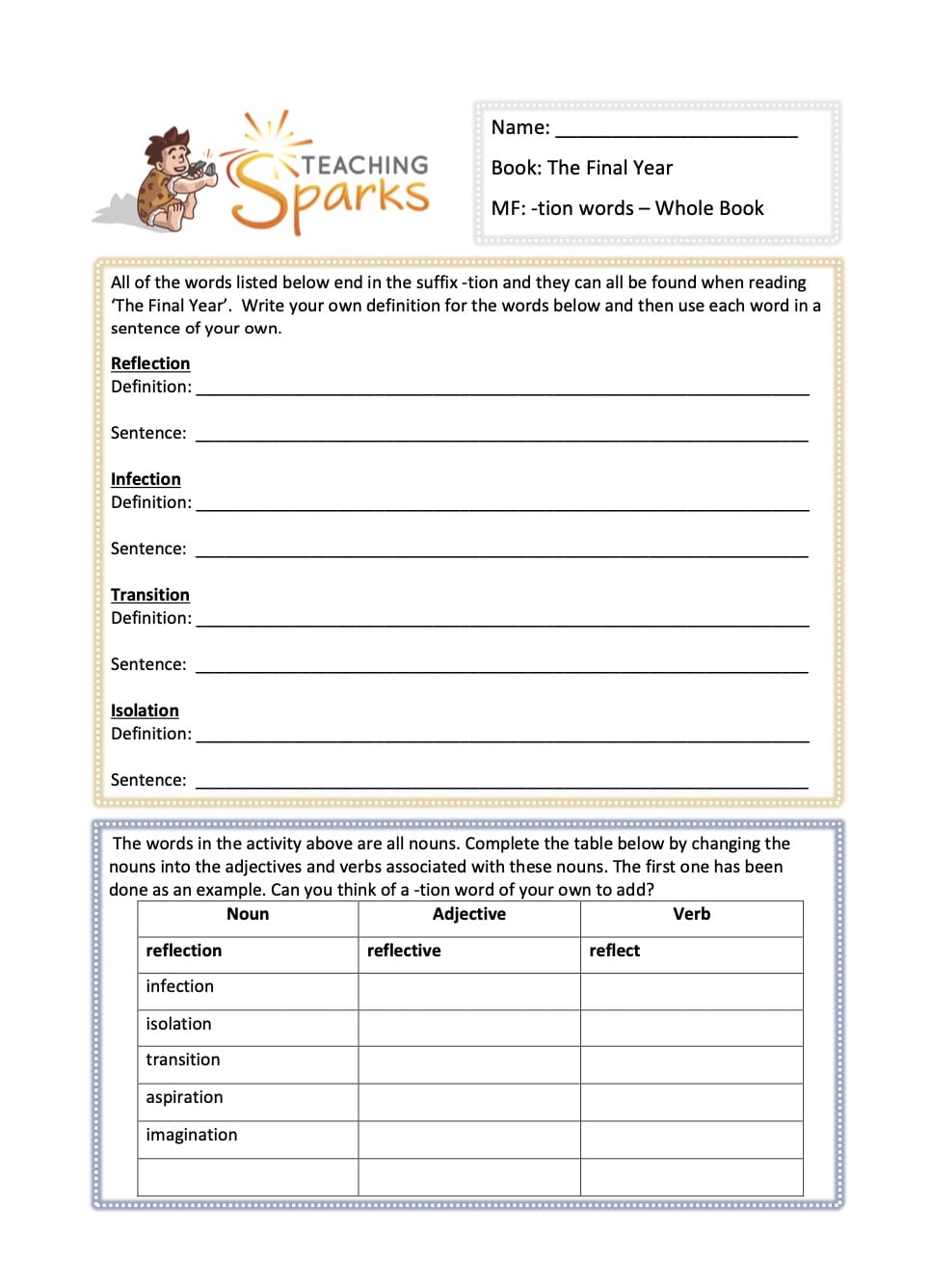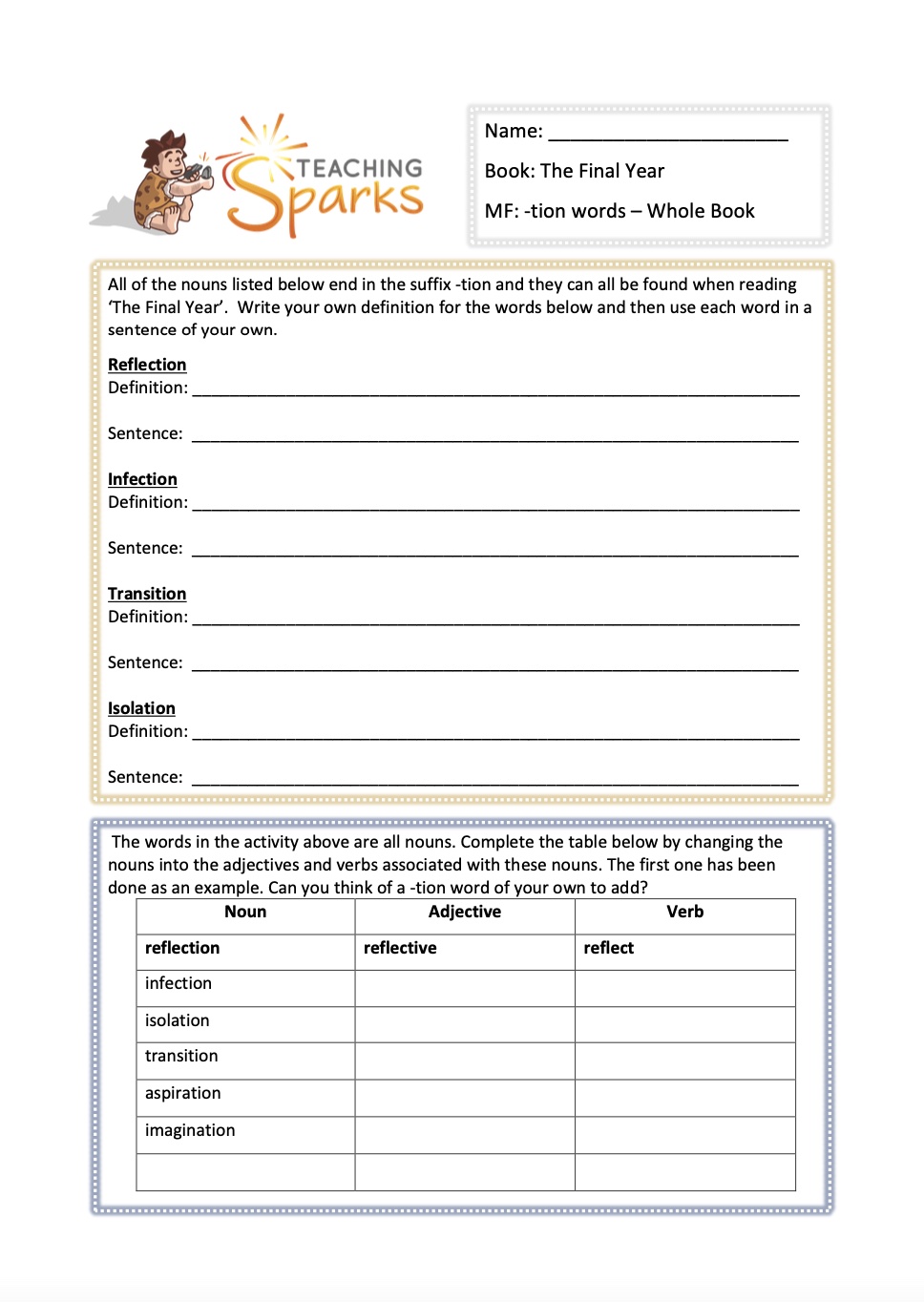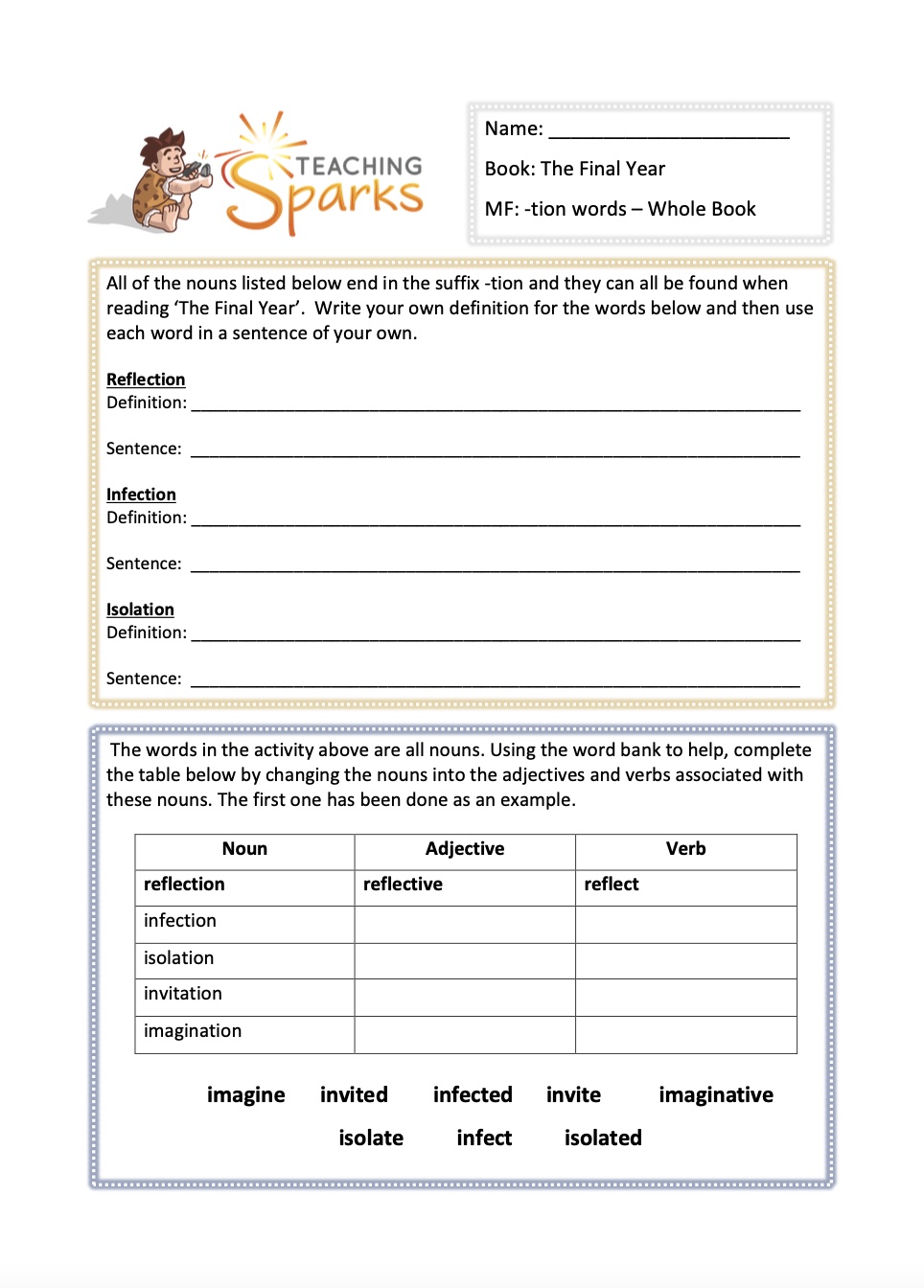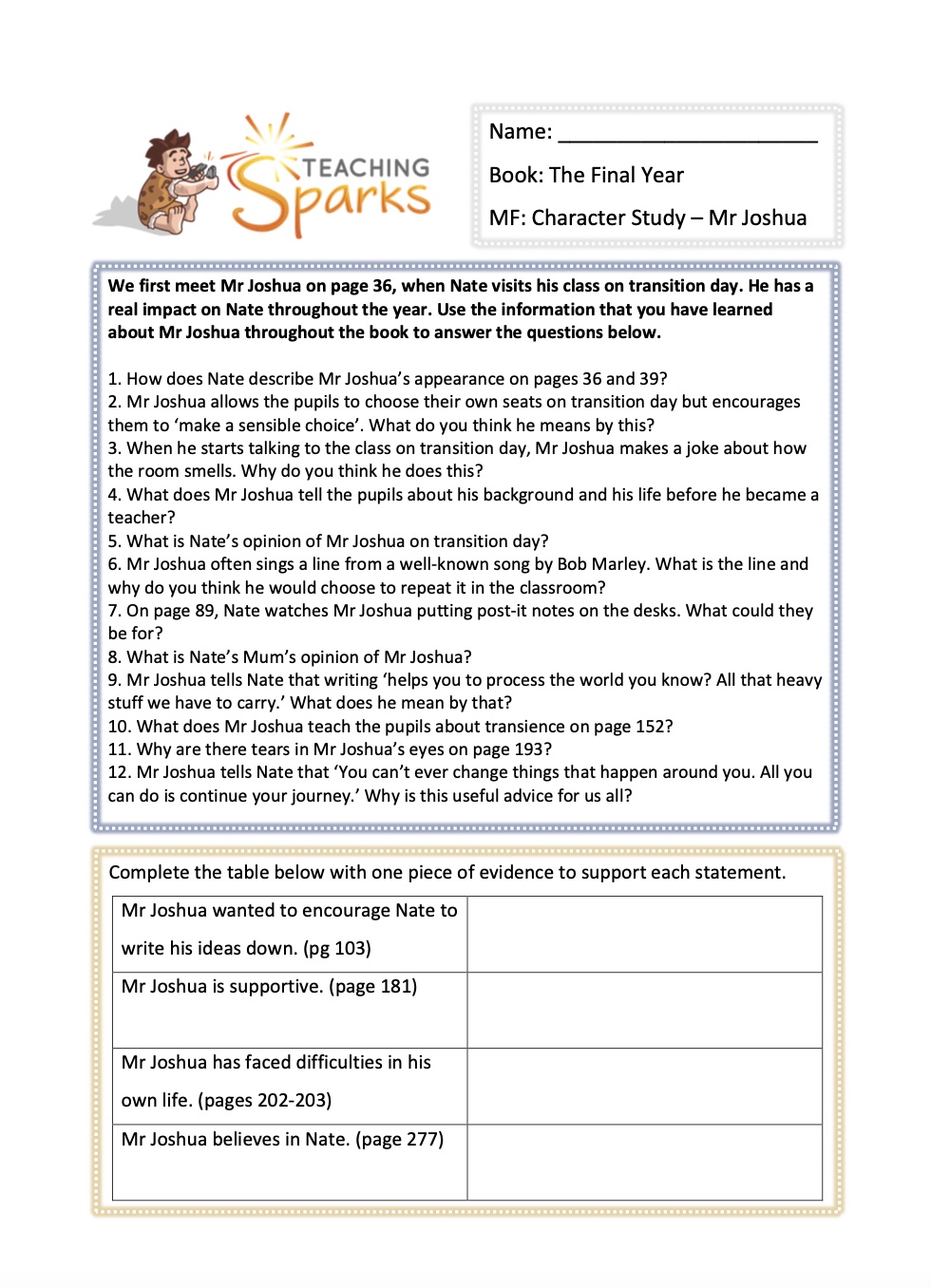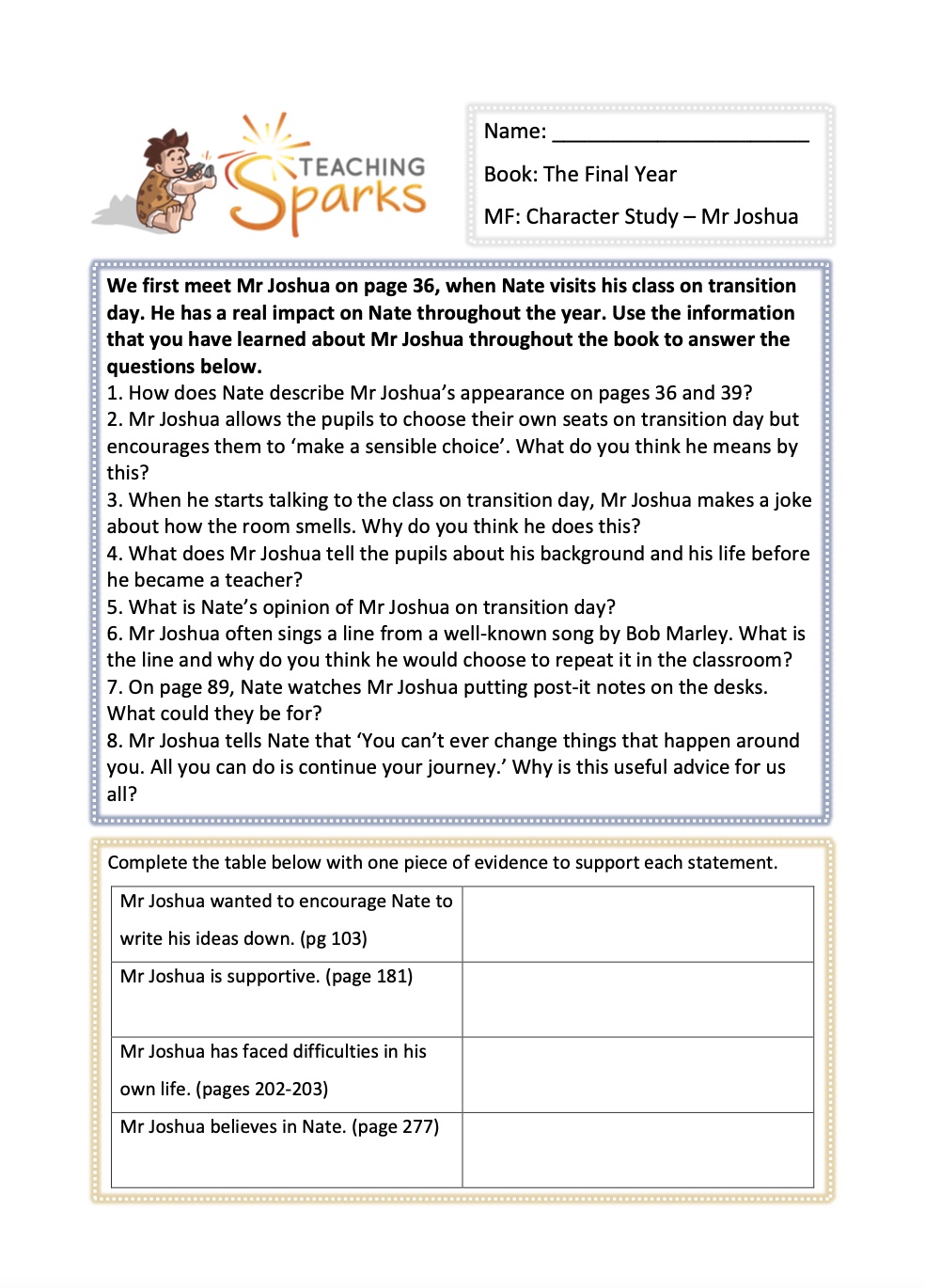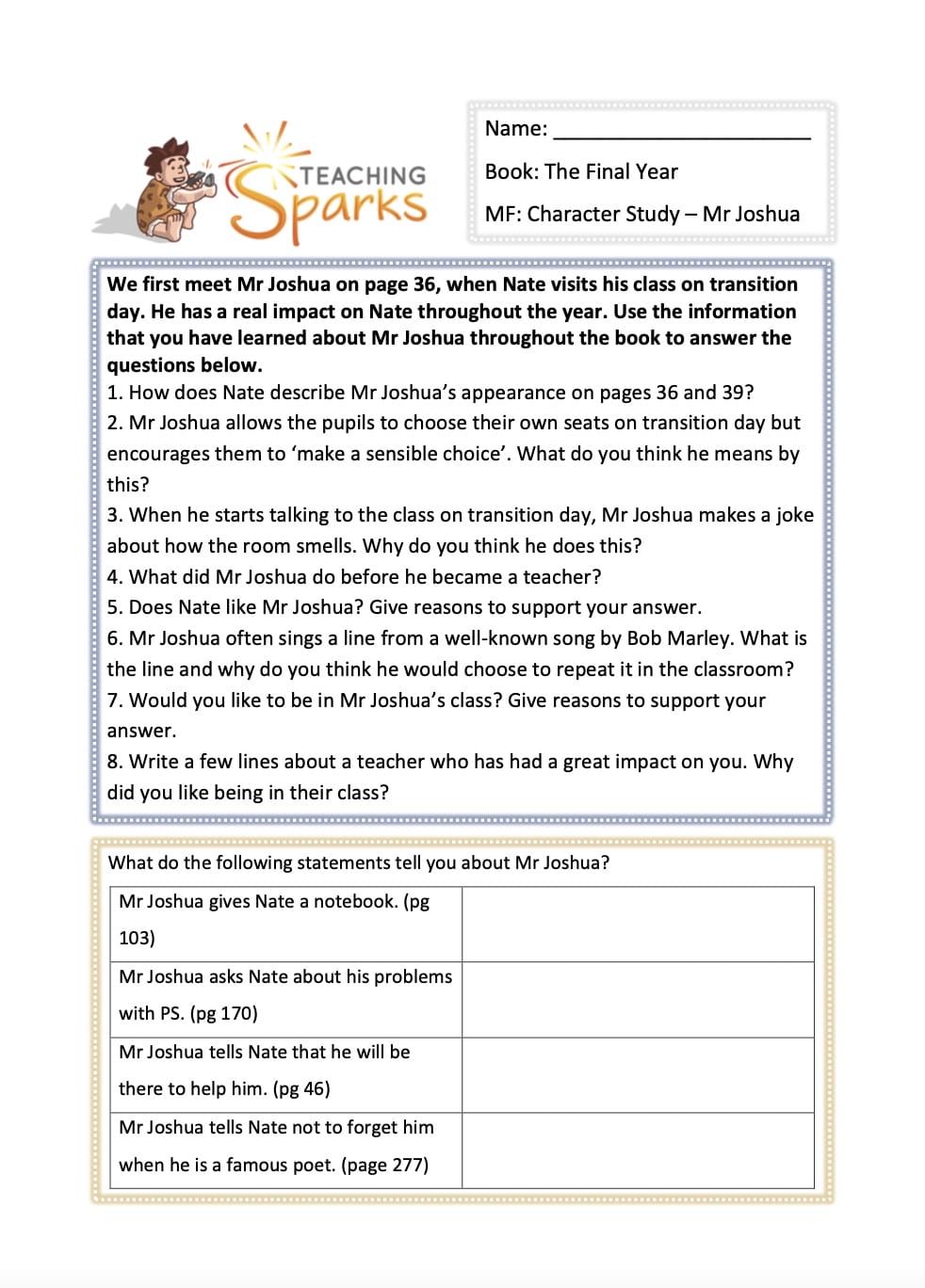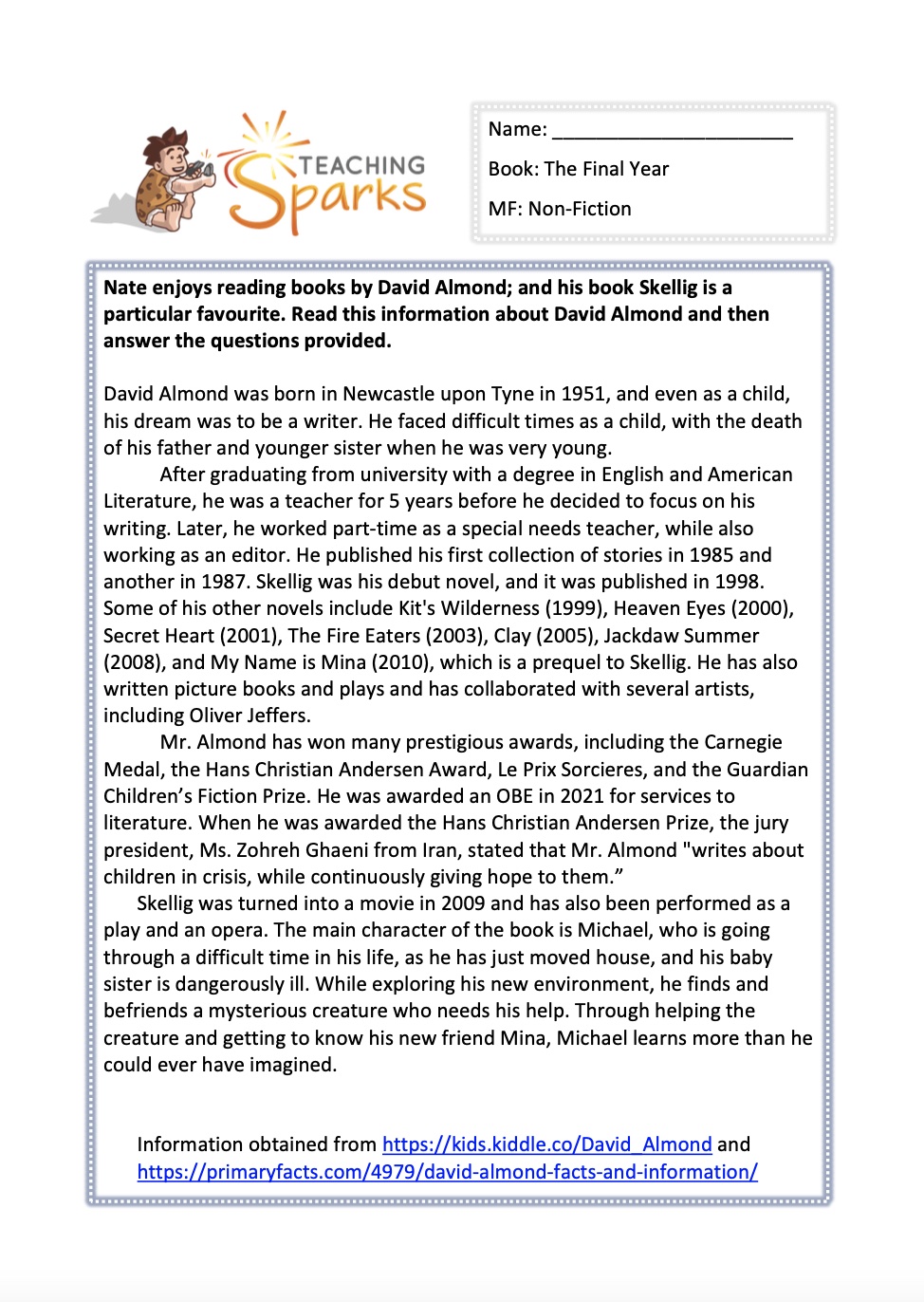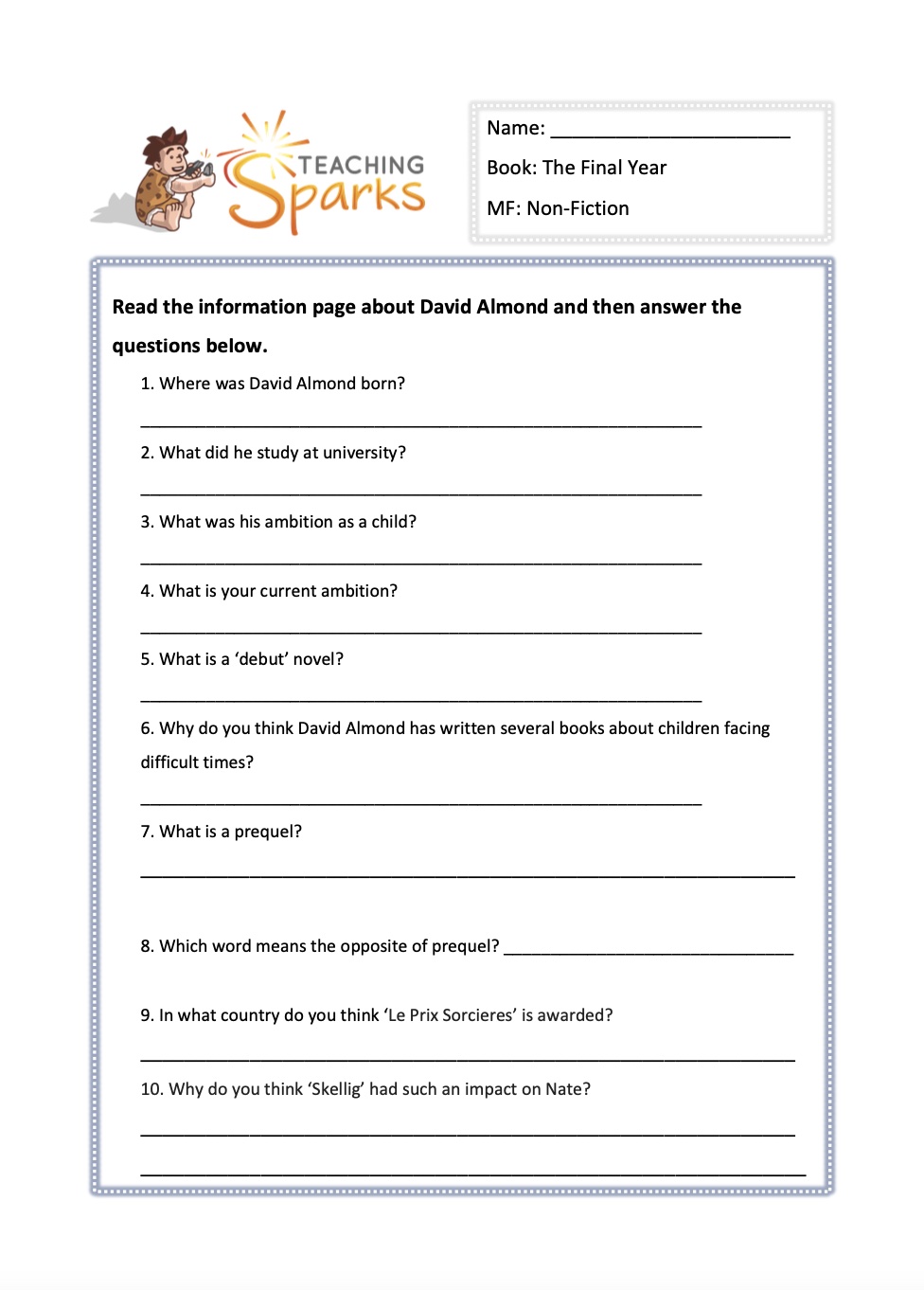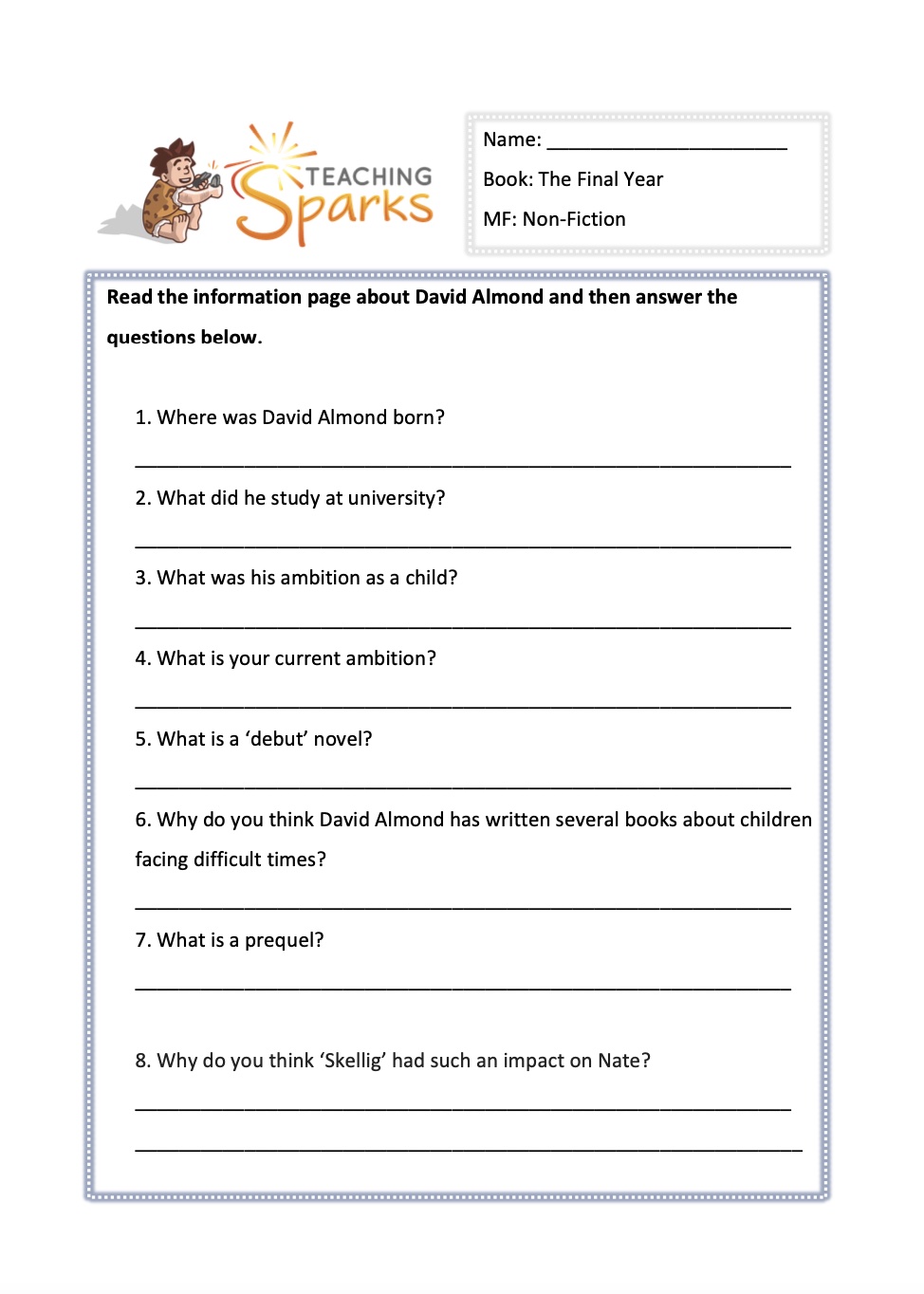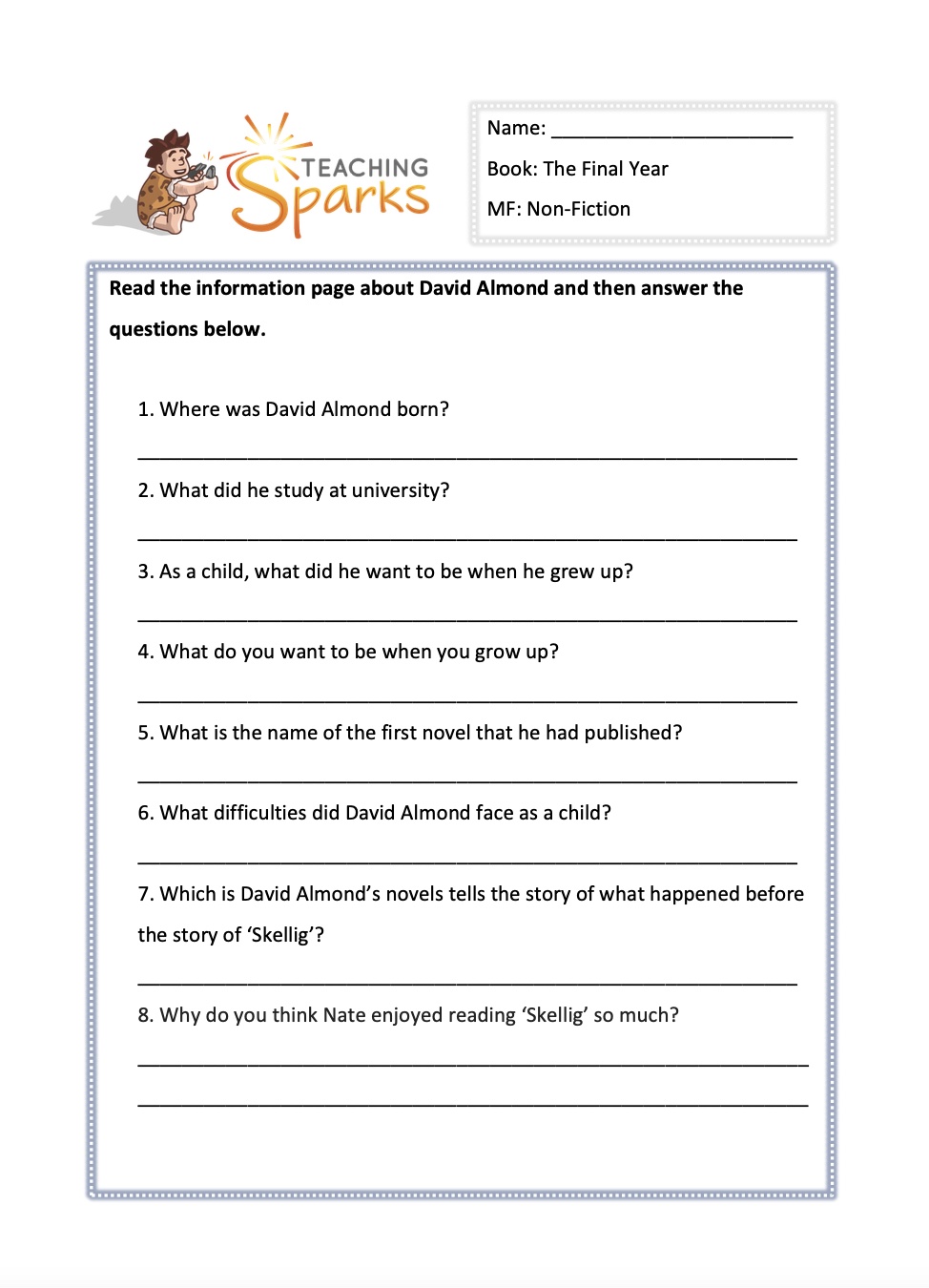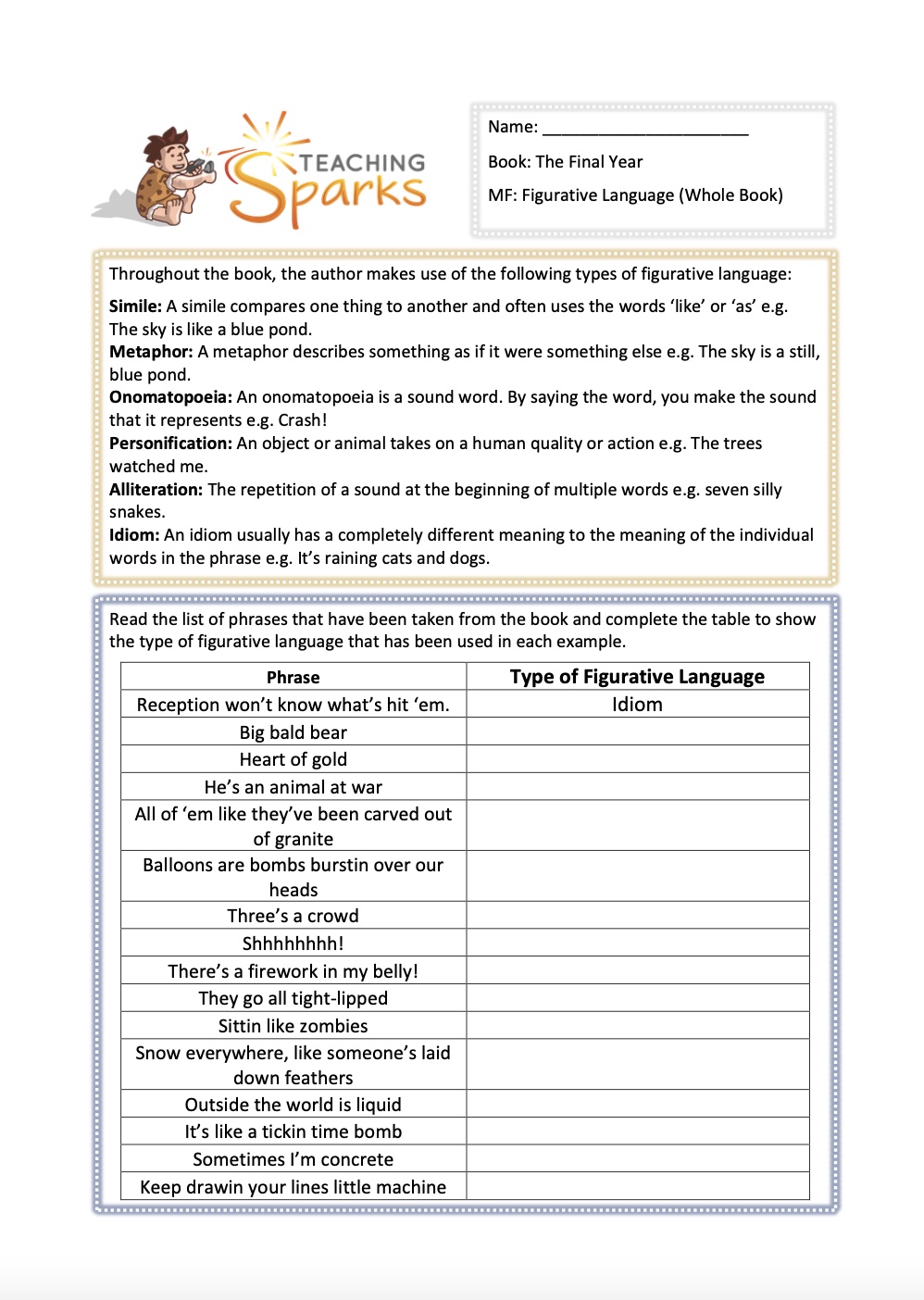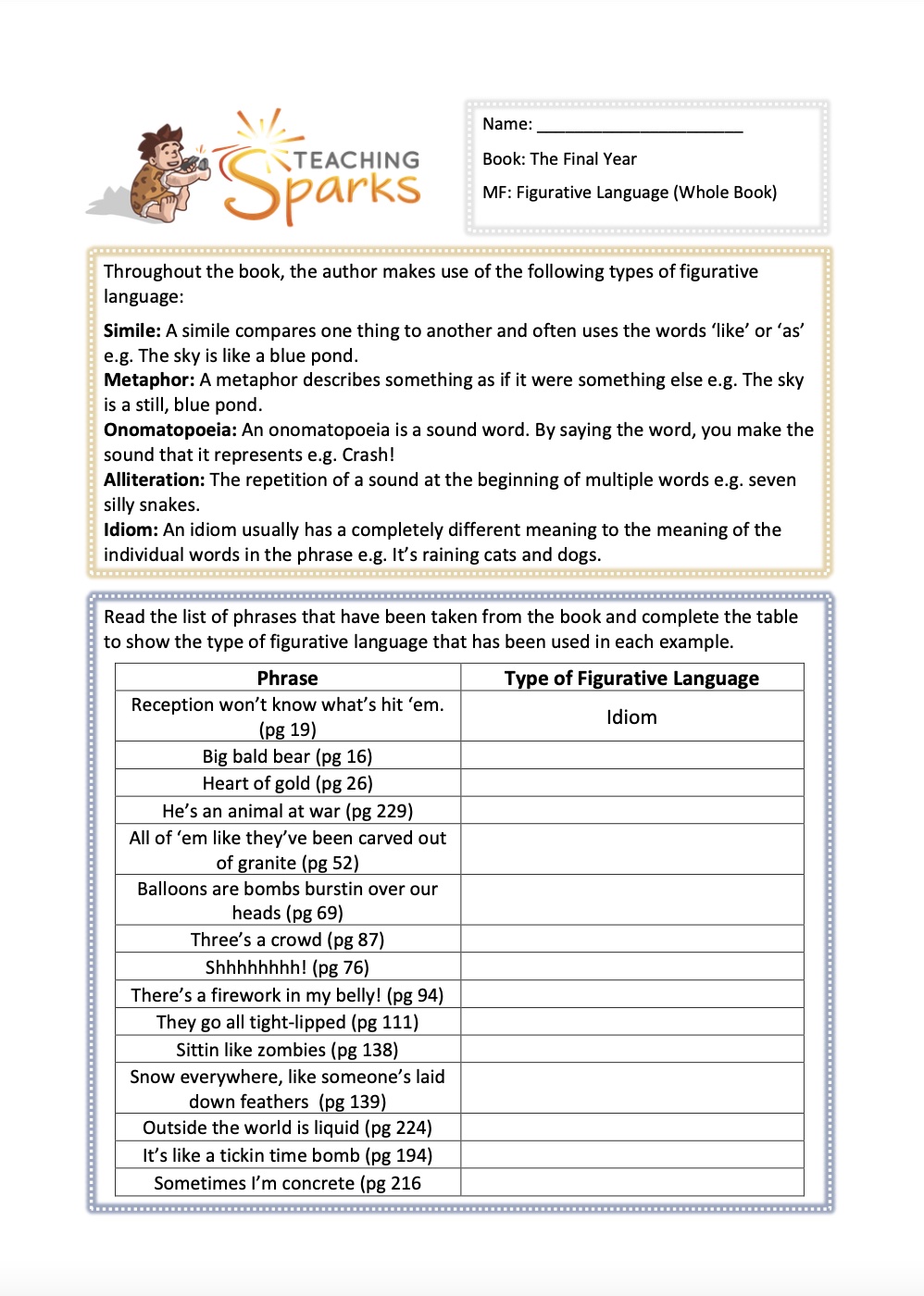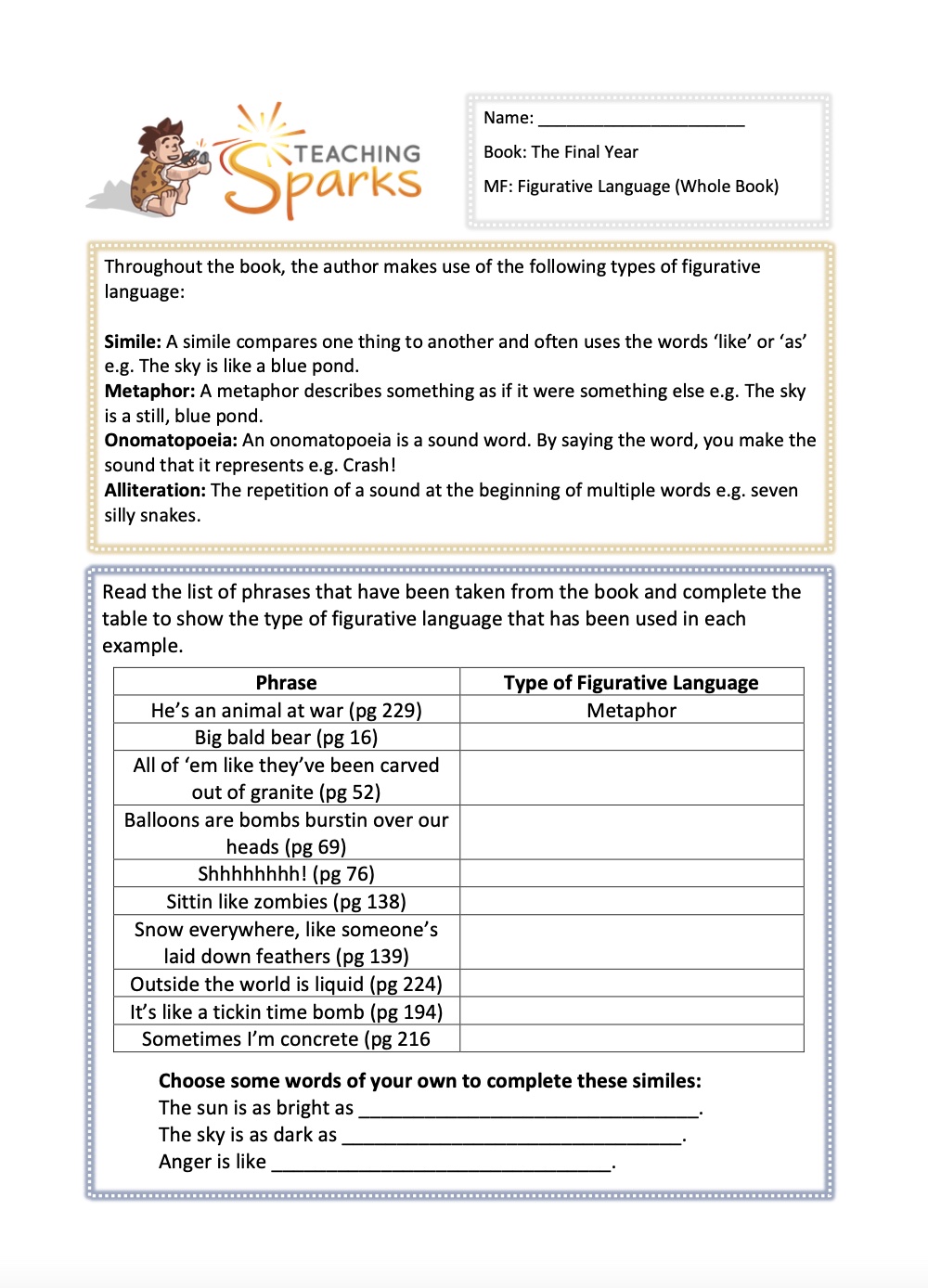The Final Year
The Final Year by Matt Goodfellow
It is finally here – the popular book by Matt Goodfellow that has all UKS2 teachers in a tizzy!
Life can be tough in your last year of primary school. Tests to take, preparing for the change to high school. Nate is ready for it all, knowing his best friend PS at his side – they’ ve been inseparable since Nursery.
But when they are put in two different classes and PS finds a new friend in Turner, the school bully, his world turns upside-down. As he struggles to make sense of this and forge new friendships, he’ s dealt another blow when his youngest brother, Dylan is rushed into hospital.
His new teacher, Mr Joshua, sees a spark inside of Nate that’ s lit by his love of reading and writing and shows him how to use this to make sense of what’ s going on. But with so much working against him, and anger rising inside him, will this be enough?
Main Focus: Word Class - Pages 5-37
This is a word class resource that is aimed at Year 5 and Year 6 classes. It focuses on pages 5-37 of the book.
There are many words that can be used as both a noun and a verb. For each of the underlined words, your class will circle whether it is a verb or a noun within the context. They will then write a sentence for each word using the other word class.
Unlock ResourceMain Focus: Standard English - Pages 5-70
In The Final Year, the author writes most of the text in a way that reflects how the characters speak.
Your UKS2 class will re-write the following words and phrases in Standard English. The first has been done as an example.
This reading resource has been differentiated with the easiest resource matching the slang to standard English words.
Unlock ResourceMain Focus: Sentence Openers - Pages 102-167
In this first printable activity of Year 5 / Year 6, for each of the sentences from pages 102-167, your children will write whether they begin with a fronted adverbial, conditional clause, conjunction, pronoun or proper noun.
In the second activity for KS2, for each of the sentences from pages 102-167, they will write whether they begin with a fronted adverbial (a clause which says when, where or how something happens), a conditional clause (an event which might cause something else to happen) , conjunction, proper noun (the name of a person, place, day etc.) or pronoun (used in place of a noun).
In the third resource, each of the sentences from pages 102-167 begins with a fronted adverbial (a clause which says when, where or how something happens.) For each, tick the box to show what type of fronted adverbial is used.
Unlock ResourceMain Focus: Comprehension
This is a comprehension linked to Pages 170-231 of The Final Year book by Matt Goodfellow.
Your class will read the questions and using the information from the book, answer as best as they can.
The resource has been differentiated and contains a range of questions from retrieval, inference, vocabulary related and more.
Unlock ResourceMain Focus: Poetry - Page 196
On Page 196, Nate writes a beautiful poem for his bother Dylan.
Your class will use the same structure to write a poem about what they imagine their new school will be like when they move on from Primary school.
Encourage them to try to include at least one type of figurative language e.g. metaphor, simile, personification, onomatopoeia or idiom.
They will end their poem with a line about how they are feeling as they think about moving on after their final year.
Unlock ResourceMain Focus: Comprehension Parts 1 and 2
This is a comprehension linked to parts 1 and 2 of the book.
Your class will answer retrieval questions, explore the vocabulary used in the story, find evidence, make inferences and more.
Unlock ResourceMain Focus: Suffixes -tion words (Whole Book)
All of the nouns listed below end in the suffix -tion and they can all be found when reading ‘The Final Year’.
Your kids will write their own definition for the words below and then use each word in a sentence of their own.
The second part of the activity: The words in the activity above are all nouns. Using the word bank to help, your class will complete the table below by changing the nouns into the adjectives and verbs associated with these nouns. The first one has been done as an example.
Unlock ResourceMain Focus: Character Study - Mr Joshua
This is a character study activity that focuses on Mr Joshua.
We first meet Mr Joshua on page 36, when Nate visits his class on transition day. He has a real impact on Nate throughout the year. Use the information that your class have learned about Mr Joshua throughout the book to answer the questions below. A few have been given to show you examples.
1. How does Nate describe Mr Joshua’s appearance on pages 36 and 39?
2. Mr Joshua allows the pupils to choose their own seats on transition day but encourages them to ‘make a sensible choice’. What do you think he means by this?
3. When he starts talking to the class on transition day, Mr Joshua makes a joke about how the room smells. Why do you think he does this?
4. What does Mr Joshua tell the pupils about his background and his life before he became a teacher?
Main Focus: Non Fiction - David Almond
Nate enjoys reading books by David Almond; and his book Skellig is a particular favourite.
Your UKS2 class will read this information about David Almond and then answer the questions provided.
David Almond was born in Newcastle upon Tyne in 1951, and even as a child, his dream was to be a writer. He faced difficult times as a child, with the death of his father and younger sister when he was very young.
Unlock ResourceMain Focus: Figurative Language (Whole Book)
Throughout the book, the author makes use of the following types of figurative language:
Simile: A simile compares one thing to another and often uses the words ‘like’ or ‘as’ e.g. The sky is like a blue pond.
Metaphor: A metaphor describes something as if it were something else e.g. The sky is a still, blue pond.
Onomatopoeia: An onomatopoeia is a sound word. By saying the word, you make the sound that it represents e.g. Crash!
Personification: An object or animal takes on a human quality or action e.g. The trees watched me.
Alliteration: The repetition of a sound at the beginning of multiple words e.g. seven silly snakes.
Idiom: An idiom usually has a completely different meaning to the meaning of the individual words in the phrase e.g. It’s raining cats and dogs.
Your class will read the list of phrases that have been taken from the book and complete the table to show the type of figurative language that has been used in each example.
Unlock Resource
